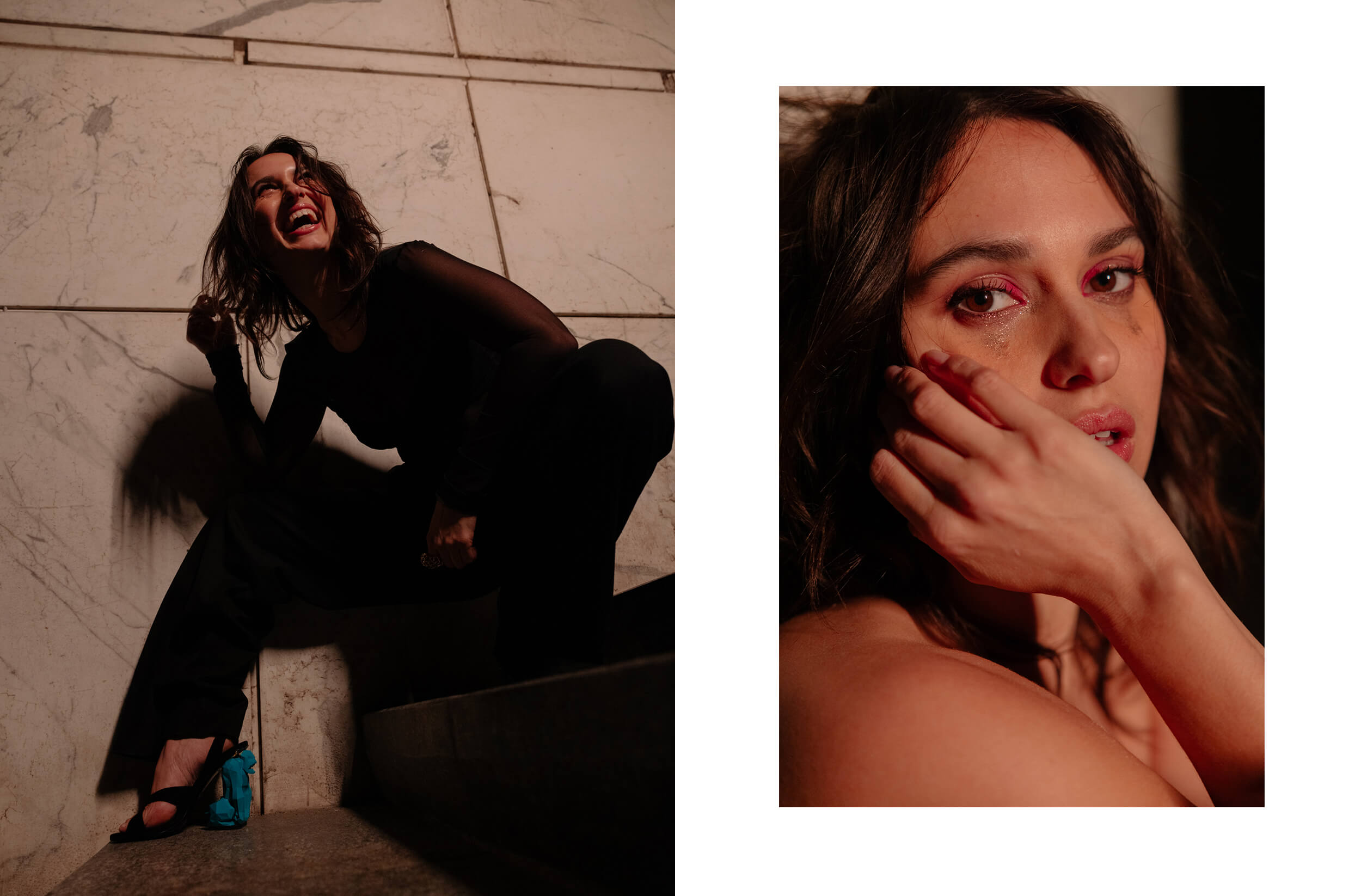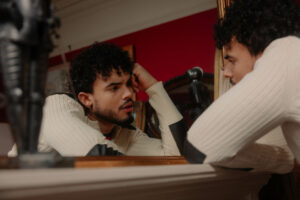A bit like a symphony, with a “musical harmony” that transports individuals up to making it turn into a group, “La Prima Regola” tells the ordinary life of a community, a group of young adults from the outskirts of Bari, Italy, all different from each other but all sharing a past that shouldn’t belong to anyone, much less to adolescents.
We met Ileana D’Ambra, one of the performers in this drama directed by Massimiliano D’Epiro and based on a theater play by Vincenzo Manna, and we spoke about the school microcosm, the suburbs, how close but at the same time far we are from transforming it into just a harmless mental place. We spoke about her character, Maisa, a student marked from an intense (even though brief) life of abuse and preconceptions, a girl that has all the right reasons to be grumpy and mad at the world, but despite everything she’s never presented like a victim. A context that’s diametrically opposed to the happy, lighthearted, and playful atmosphere that Ileana found and made hers in “Che Dio ci aiuti 7”, coming soon on January 2023 on the Italian network Rai1.
Maybe it’s because she’s a Capricorn, but if Ileana has arrived here and now, it’s because she’s determined to follow her own path, “right here and now”.
What’s your first cinema memory?
My first cinema memory dates back to when I was 7 and it’s the day I acted for the first time in front of a camera. It was a small, black Panasonic that belonged to two support teachers at my elementary school in Bologna. They were the support teachers of one of my classmates who suffered from autistic spectrum disorders, and they decided to have the whole class take part in a competition for the integration of the region, where we had to present a long feature film entirely written, directed, and performed by us kids.
Everyone realized I was totally comfortable with acting, perhaps also because I played a dictator, the best role that I’ve ever been offered (I’m kidding, of course).
Now, you’re one of the protagonists of the movie “La Prima Regola” by Massimiliano D’Epiro: a raw story, which is also delicate in its way to exemplify the reality of suburban schools, showing their most extreme and problematic side. What was the goal you set yourself when you got on set?
As soon as I read the script for the first time, my goal had been to give Maisa, my character, strong dignity and respect. According to the story, she’s a revenge porn victim, but inside I felt the need not to ever let her appear as a victim, but rather as a warrior, who doesn’t want to be subjected to other people’s actions.
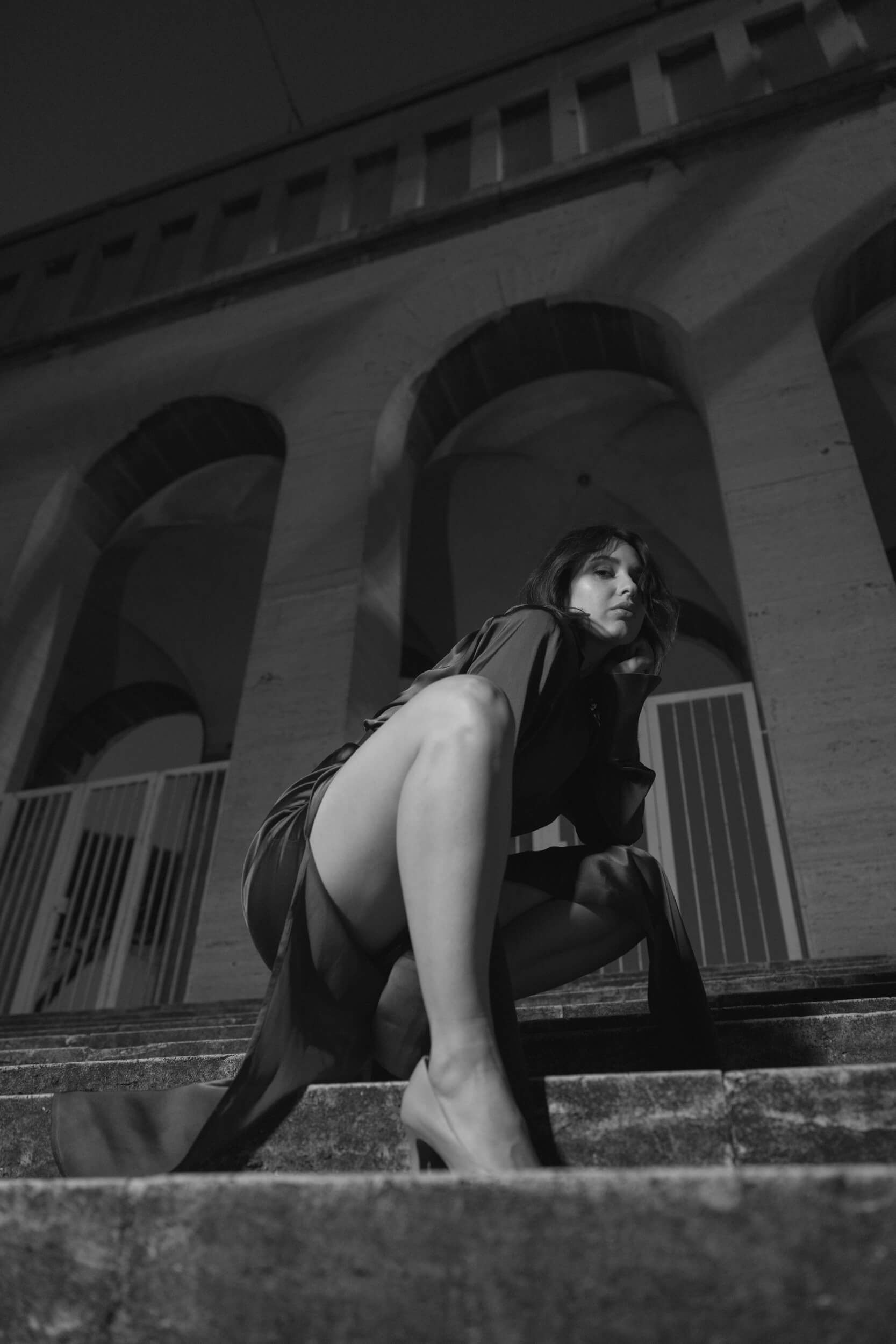
“My goal had been to give Maisa, my character, strong dignity and respect.”
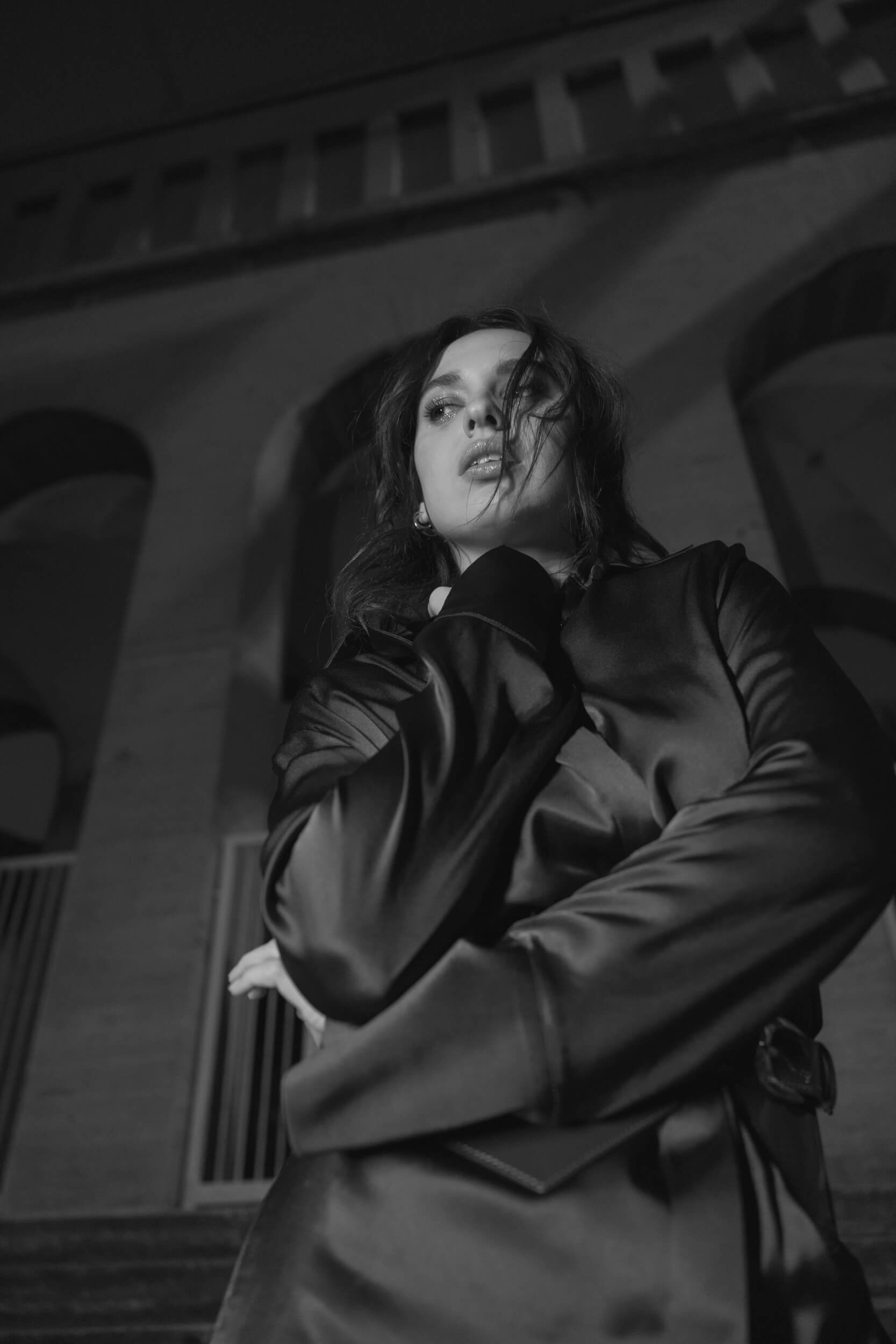
From the theater play (“La classe” by Vincenzo Manna), the movie kept the theatrical set-up, with the camera following the characters’ movements just as if they were on a stage. What has this artistic experiment left you with? Did you learn anything new about yourself from Maisa, your character?
I started acting with theater works and one of my long-term goals is to have the chance and the great privilege to carry on with both worlds. So, finding a bit of that universe in a movie like “La Prima Regola” made me feel very excited about starting shooting and it certainly strengthened in me the need to keep exploring more and more.
Maisa made me understand that fragility and what we call “cazzimma” in Italian slang, which kind of means “guts”, can coexist and even mirror each other.
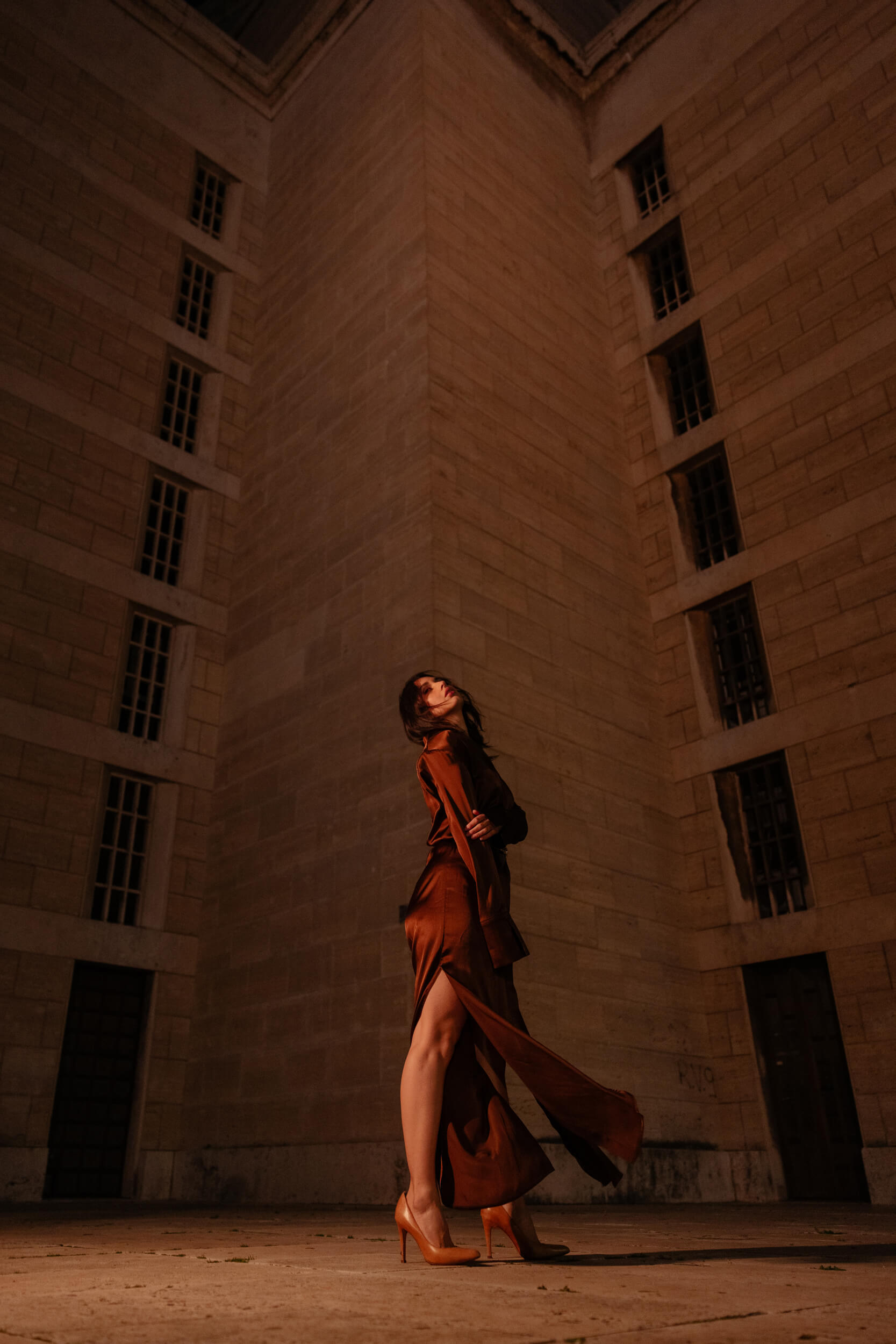
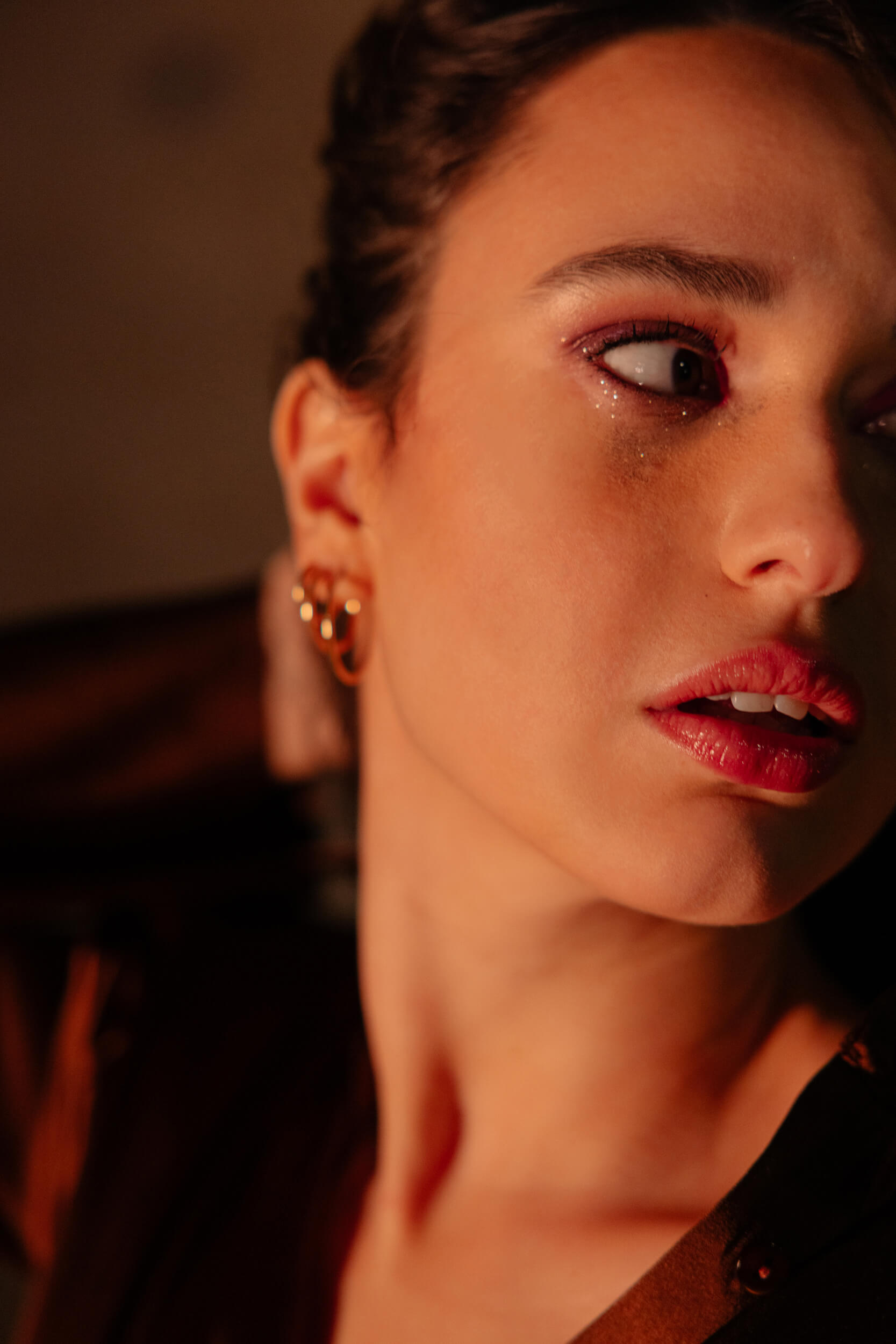
The main character, Gabriele, is a professor who finds himself in a suburban school with six troubled teenagers as students, six socially and disciplinary outcasts, and you’re one of these: an insecure, and for this reason aggressive girl, towards her peers as much as towards herself. The director and screenwriter have slept in the school where you shot the movie in order to get in the mood. How did you prepare for this role, instead? How did you work with the director and the rest of the cast?
Before shooting, we had the chance to rehearse a lot, just like in the theater, you know. This helped so much with our work, especially in searching for an almost musical harmony among us actors because this is a coral movie and we couldn’t go anywhere without each other. We really held onto each other. Then, I also dipped into the past creating a playlist of songs that I eventually realized were all the songs I would listen to when I was 16. I stole so much from the teenage instincts that would guide me when I was that age.
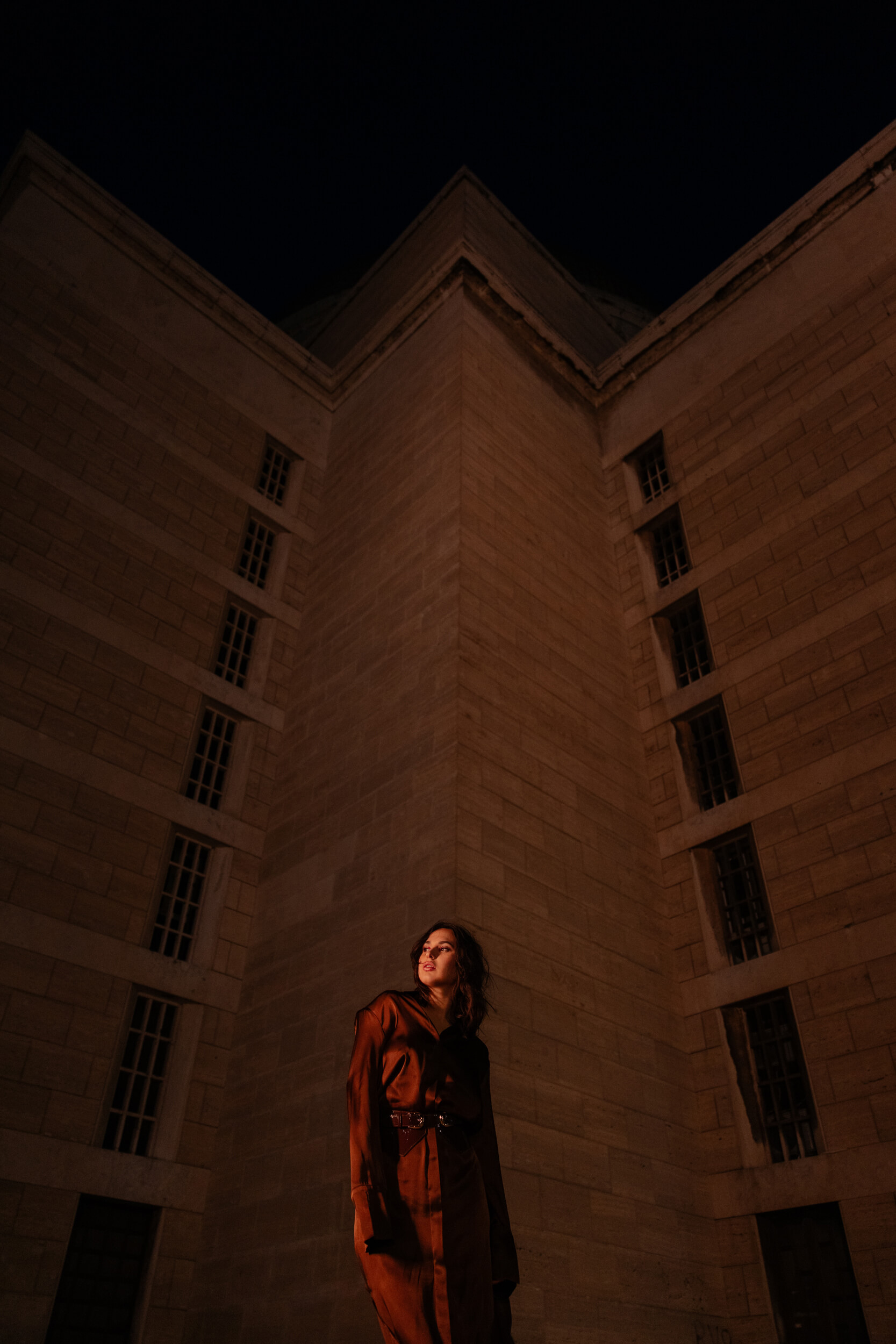
“An almost musical harmony”
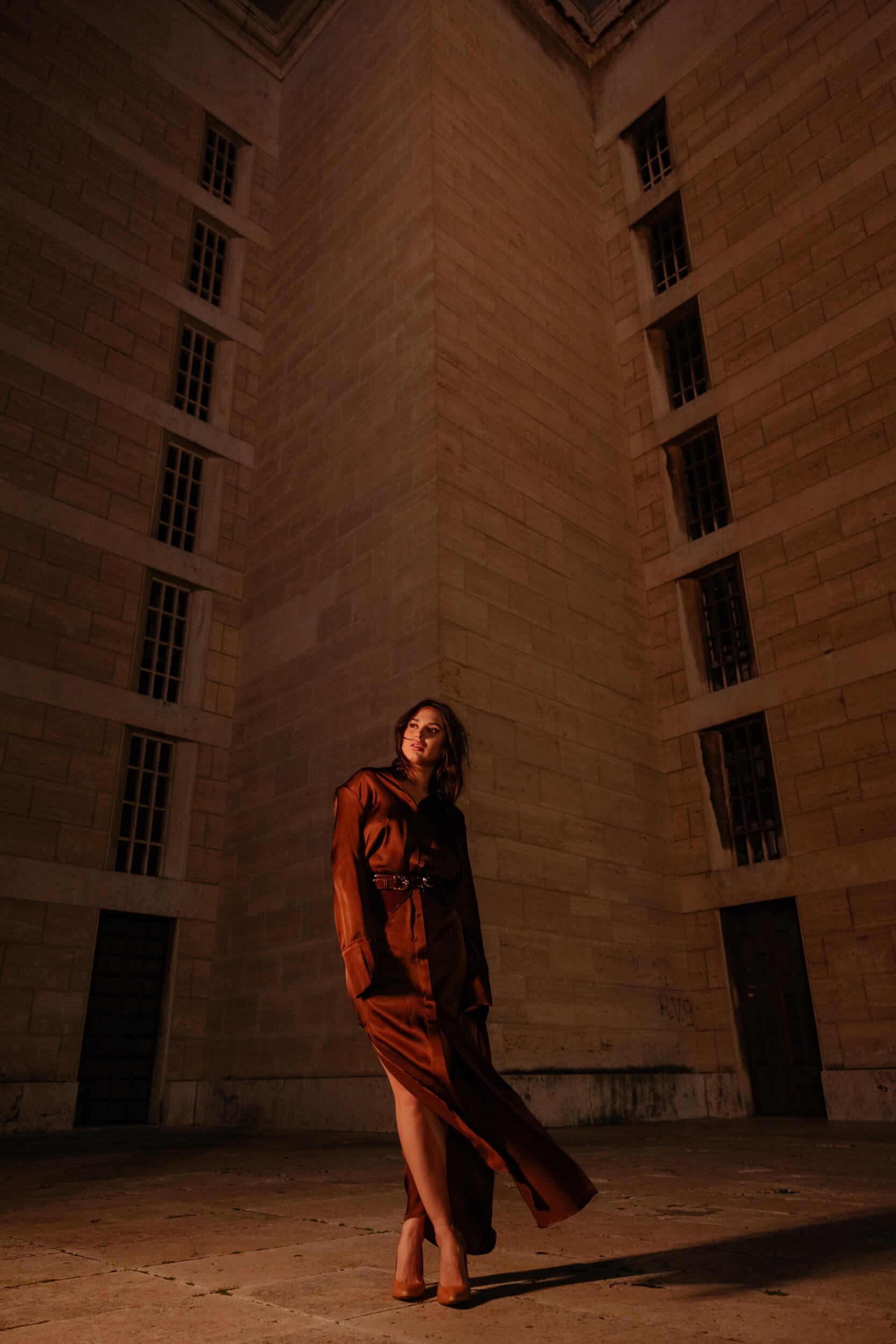
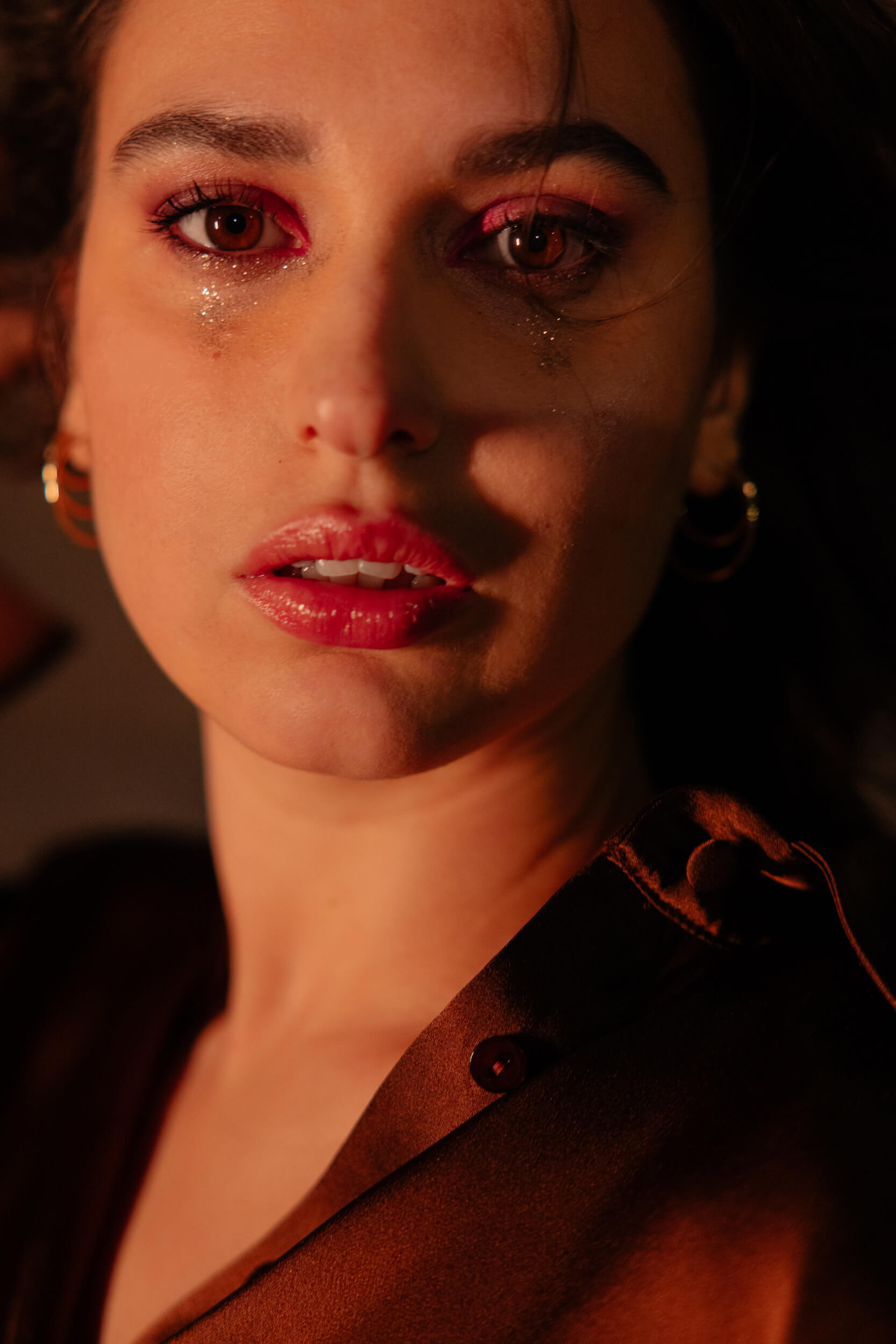
The layout of the film kind of reminded me of “The Breakfast Club”, perhaps for the fact that the story is almost entirely set in the school, so it feels a bit timeless and universal. Obviously, the mood of this story is different, as well as the scope, with tensions exploding quickly and all of a sudden, a succession of conflicts among the students and between young people and adults. Is there something or someone who’s particularly inspired you while approaching your character?
Bari was the perfect background, it’s a city full of contrasts, and living there, and breathing its energy is what truly helped me while shooting. Bari has been Maisa’s best friend. Then, I re-watched “Forever Mery”, which, although it’s very different from “La Prima Regola”, features a line of conflict that’s strongly vibrant and I thought it was right to try and steal that feeling it leaves you with.

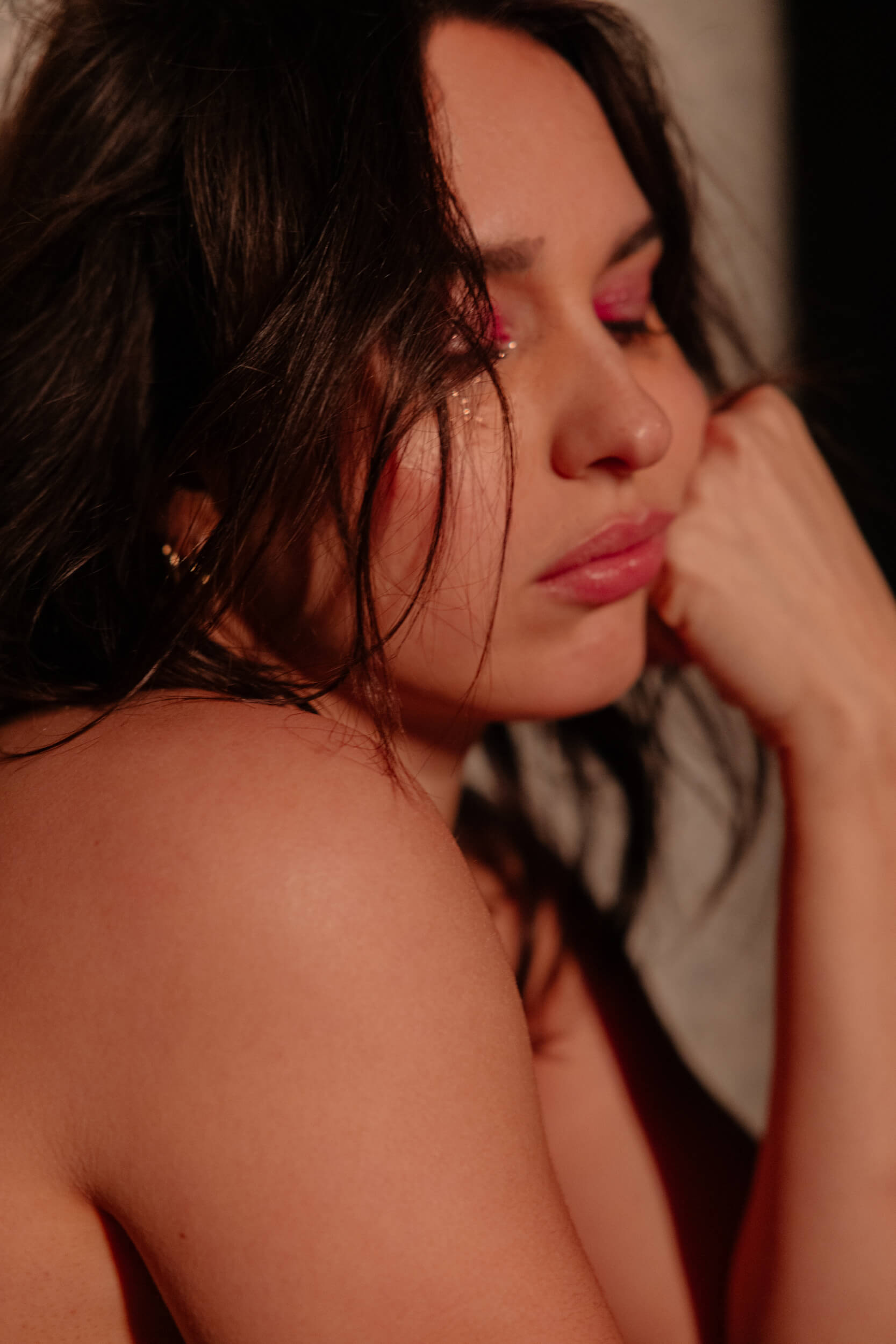
The movie reflects upon the role of young people in society and especially upon the importance of integration and education, but also on adults and how little, sometimes, they listen to younger generations. Have you had any experience with these mechanisms or have you ever witnessed them?
I think that, at this time in history, the biggest difficulty is finding real adults.
Adults who can give a good example, adults that have really grown up, and with whom you can establish a relationship of trust. They’re always less. And I would even say that this is the difficulty. There’s this widespread refusal to grow up because it’s seen as nothing but a waste of time. Maybe it’s because I’m a Capricorn, but I find being an adult fulfilling and fascinating. Sure, it’s hard and sometimes very uncomfortable, but this doesn’t mean it’s less fun!
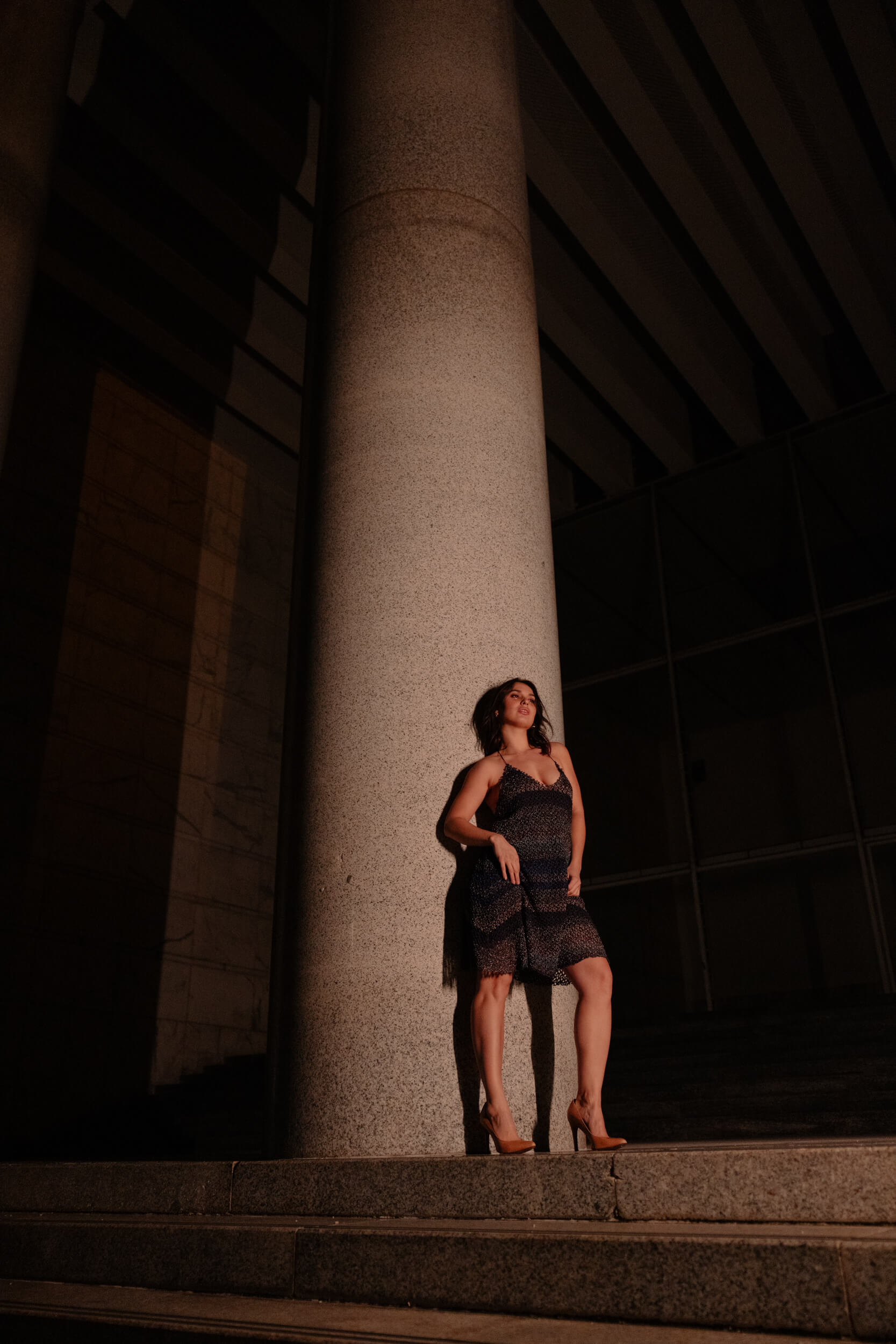
“There’s this widespread refusal to grow up because it’s seen as nothing but a waste of time”.
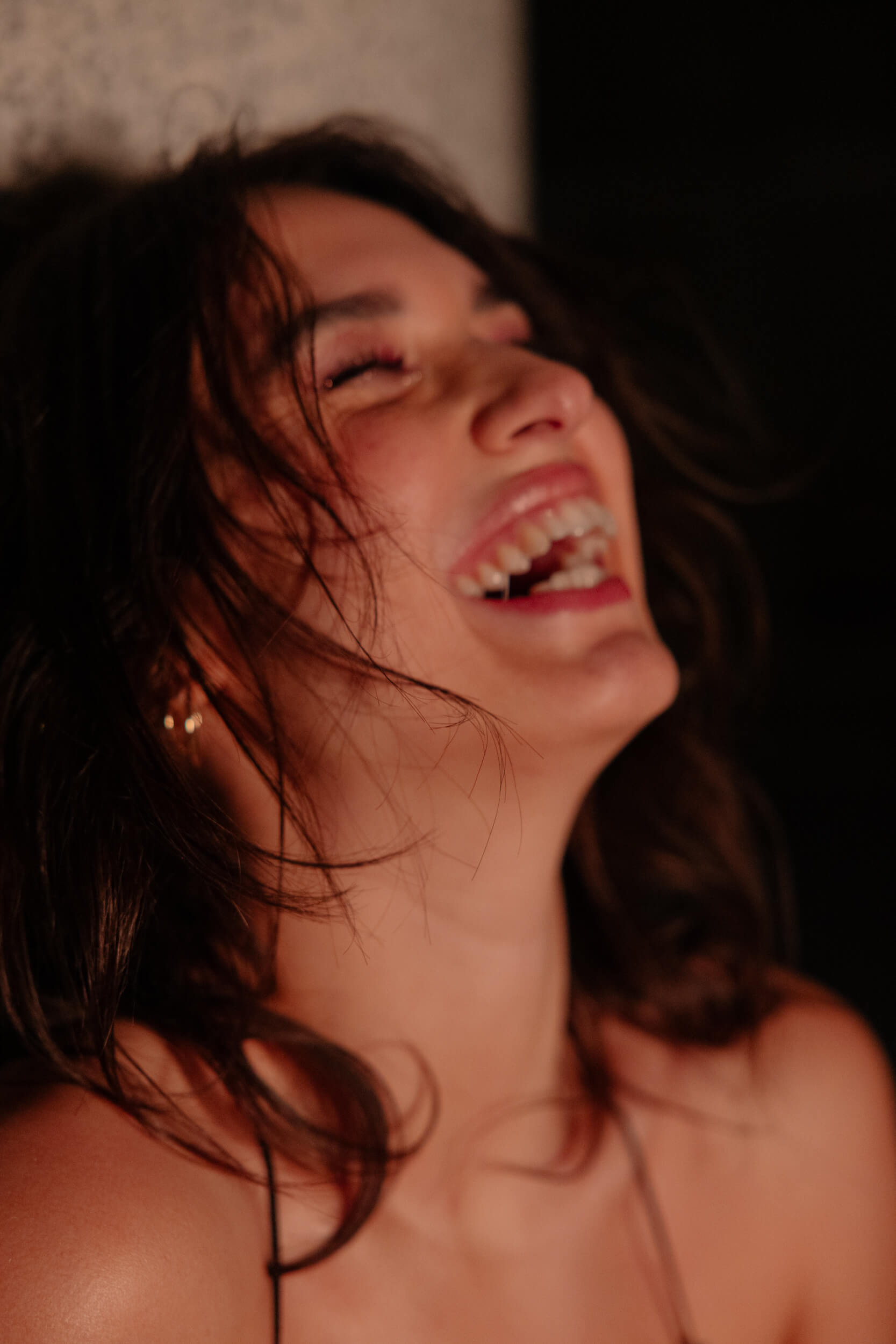
The time of the movie is only present, in fact, the story is divided into 6 chapters, each titled as a voice of the present tense of the verb “to be”. How do you think his timelessness and focus on what’s current might have helped the narration?
I think it helped with making our characters’ interior journeys more immediate for the viewers. As individuals, they try to turn into a group. I don’t know if they’ve made it, but I think that trying is already a big step ahead.
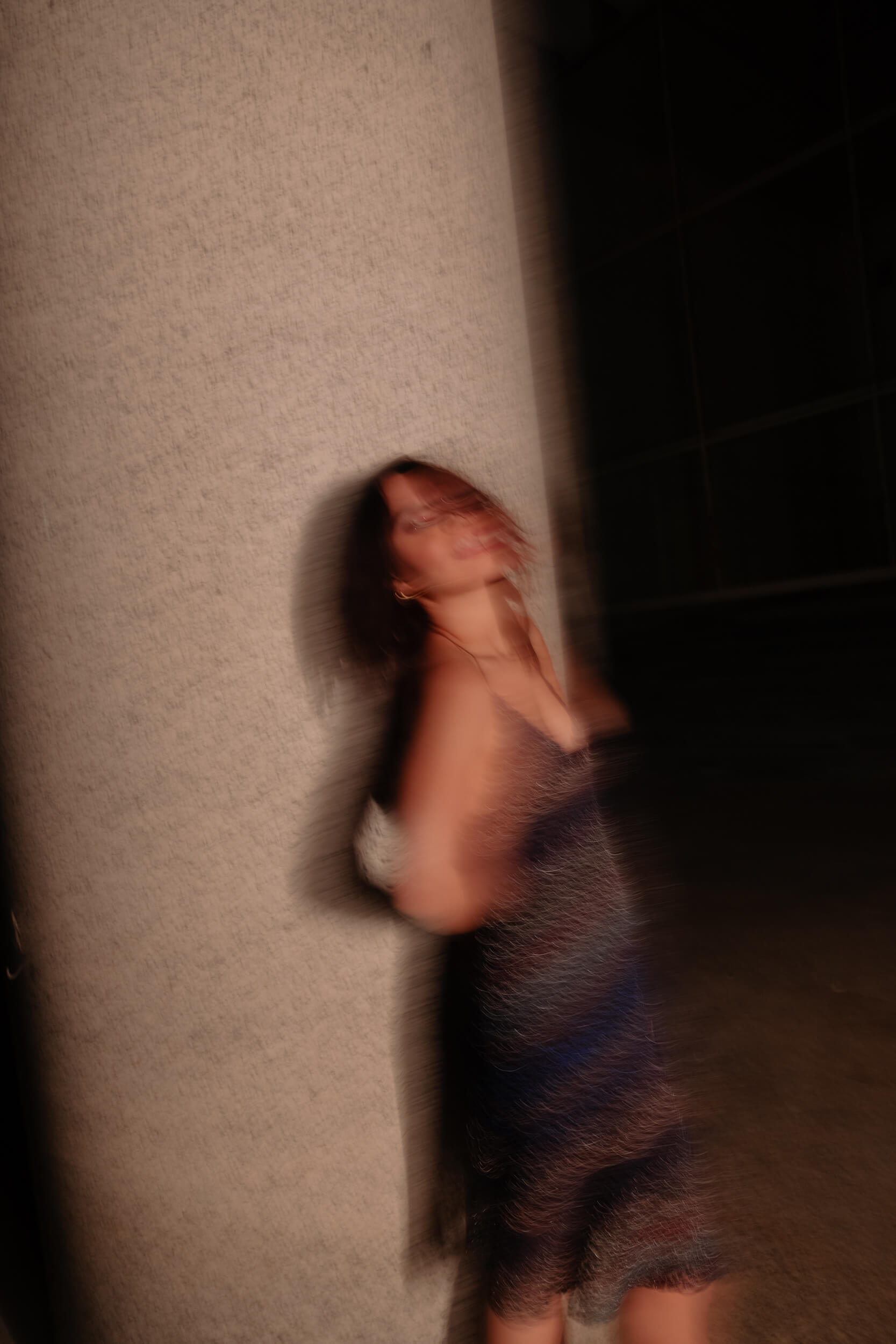
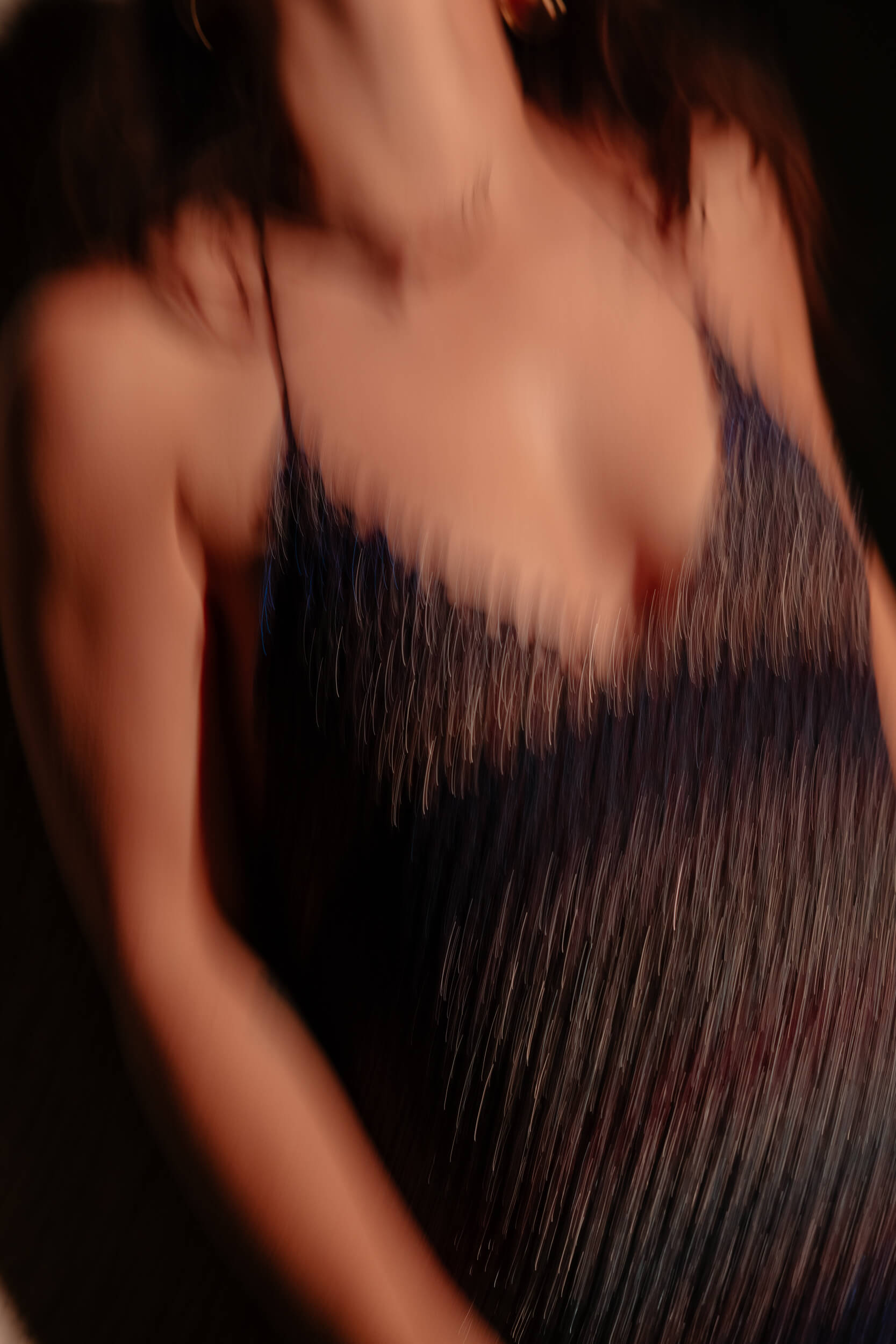
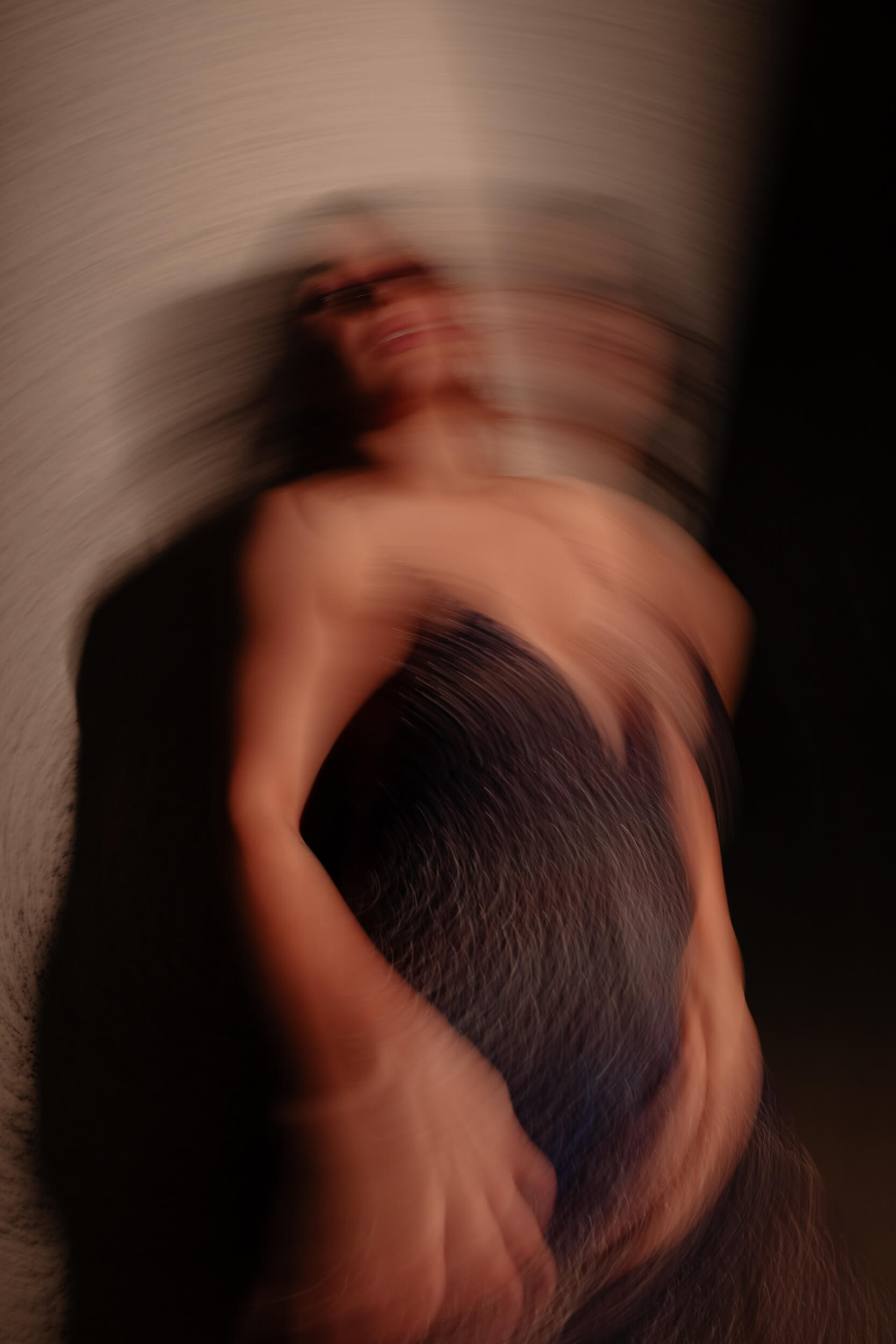
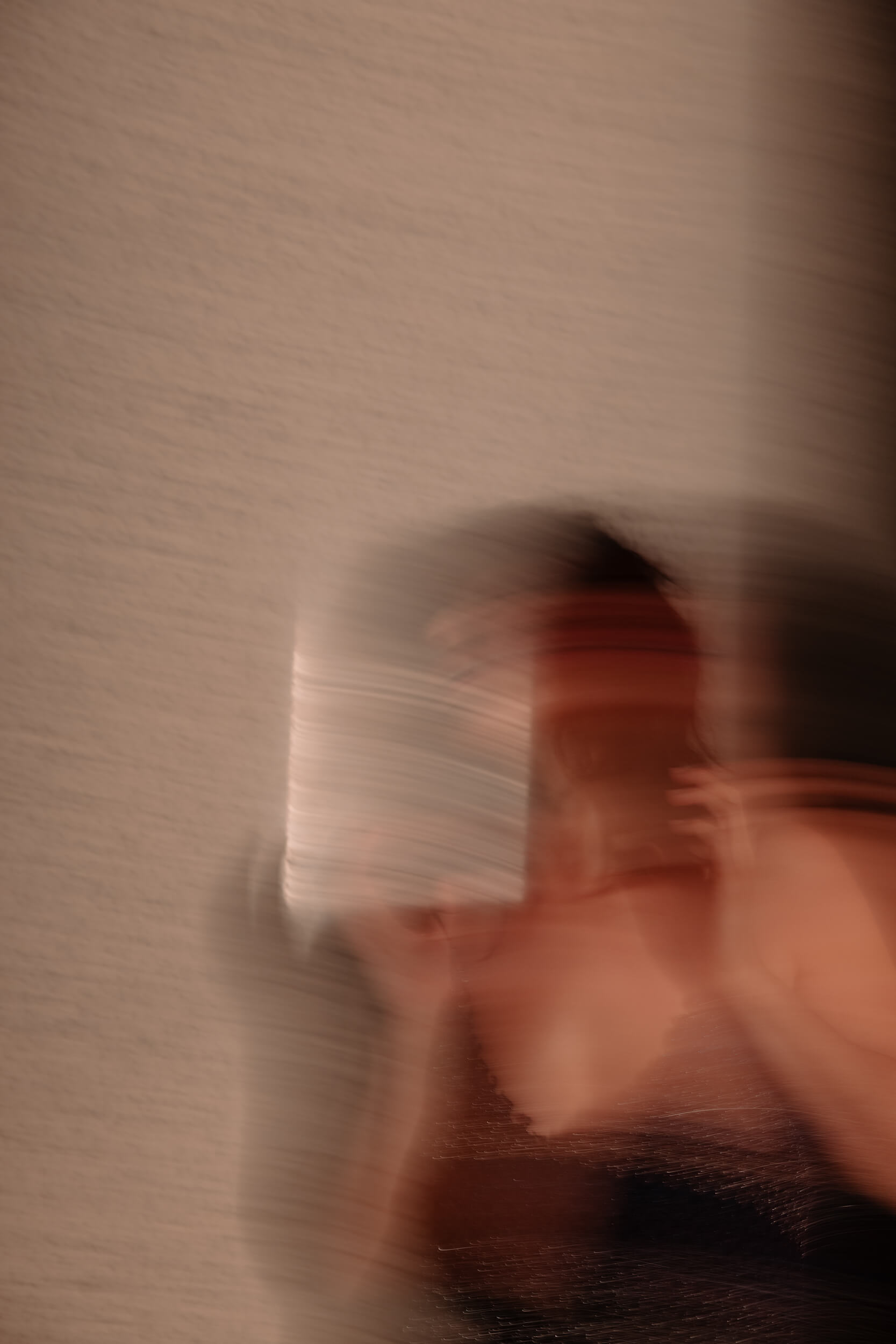
Judgments, violence, social media, politics, envy, and delusion: contemporary society is so represented and it seems to be like this and nothing else, but is it really?
If you’re wondering if I’m happy to live in this time in history, I’d lie if I said I am. These are dark, complicated times and yes, full of violence. Little by little, they brought us to this, to a total dehumanization of the individual, but negative thoughts are not in my style. Sure, I’d love to be born in the Sixties, but if I’ve come this far, it means that I have to walk my own path, right here and now.
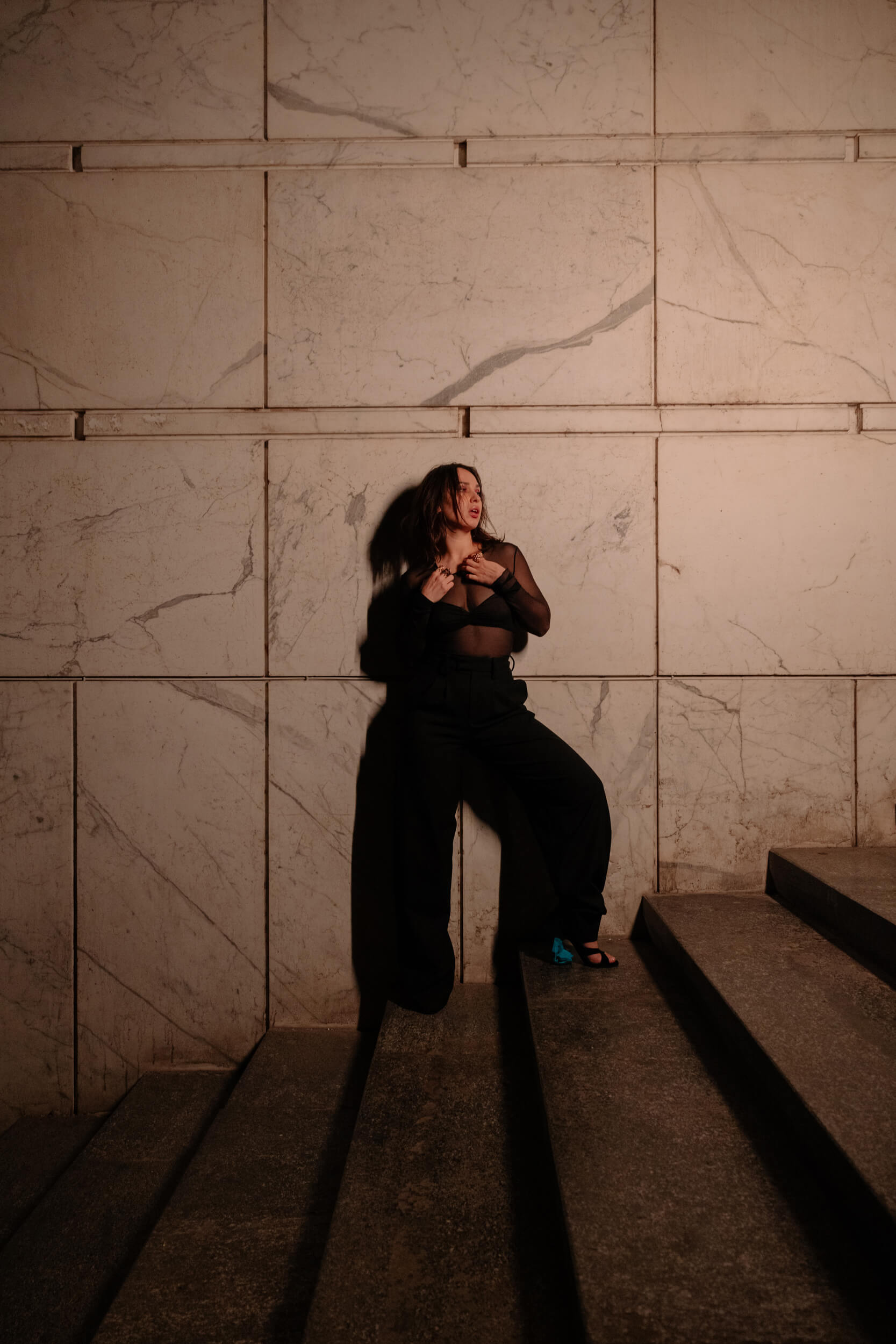

“La Prima Regola” also comes from the need to talk to young people: how important do you think screening this movie in schools could be, for example? What contribution do you feel it could give to the same academic mechanism?
I don’t think Massimiliano D’Epiro’s only goal was to make a socially engaged film, but it inevitably belongs to this category. In any case, I think it would be an occasion to open an honest dialogue.
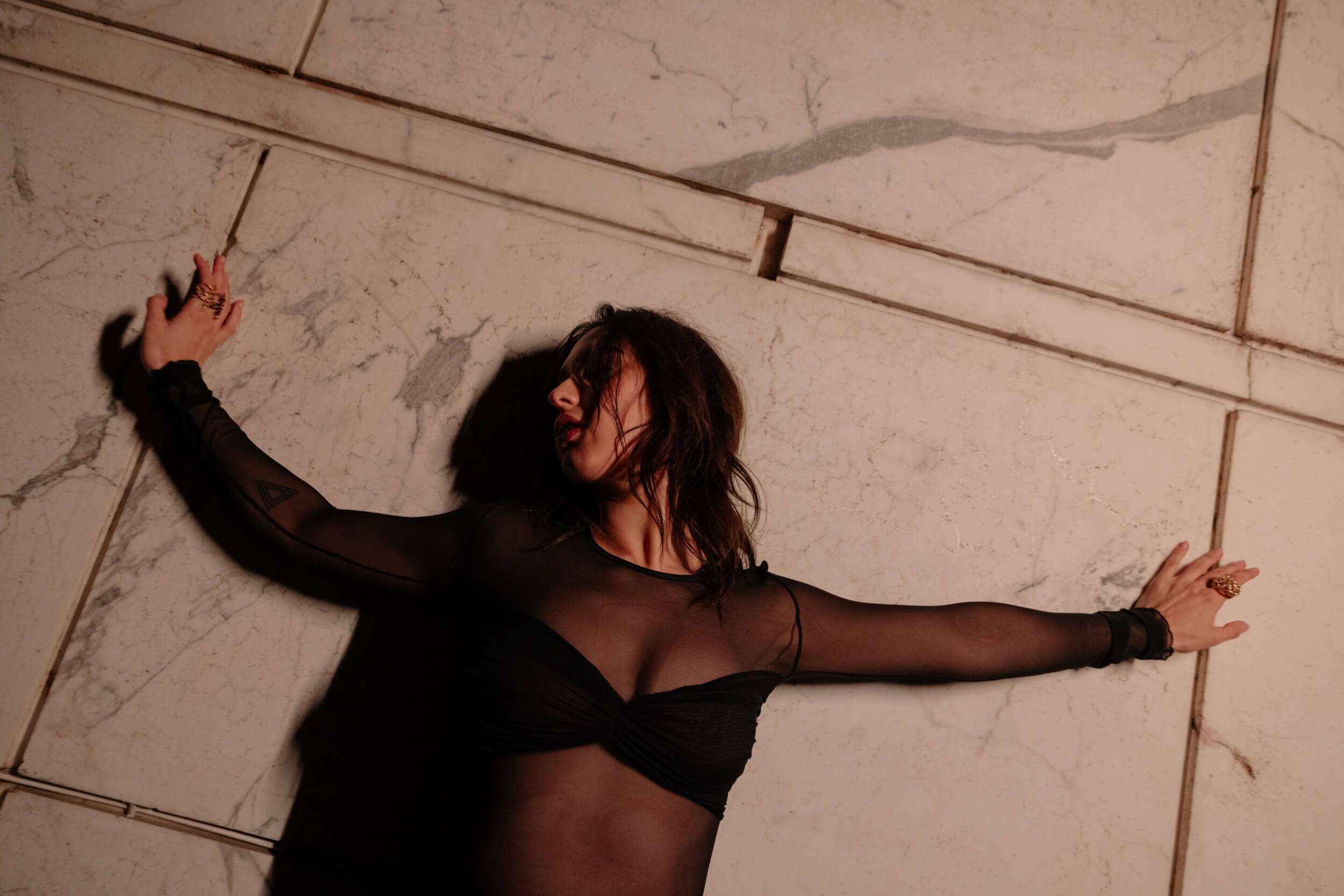
“An honest dialogue”
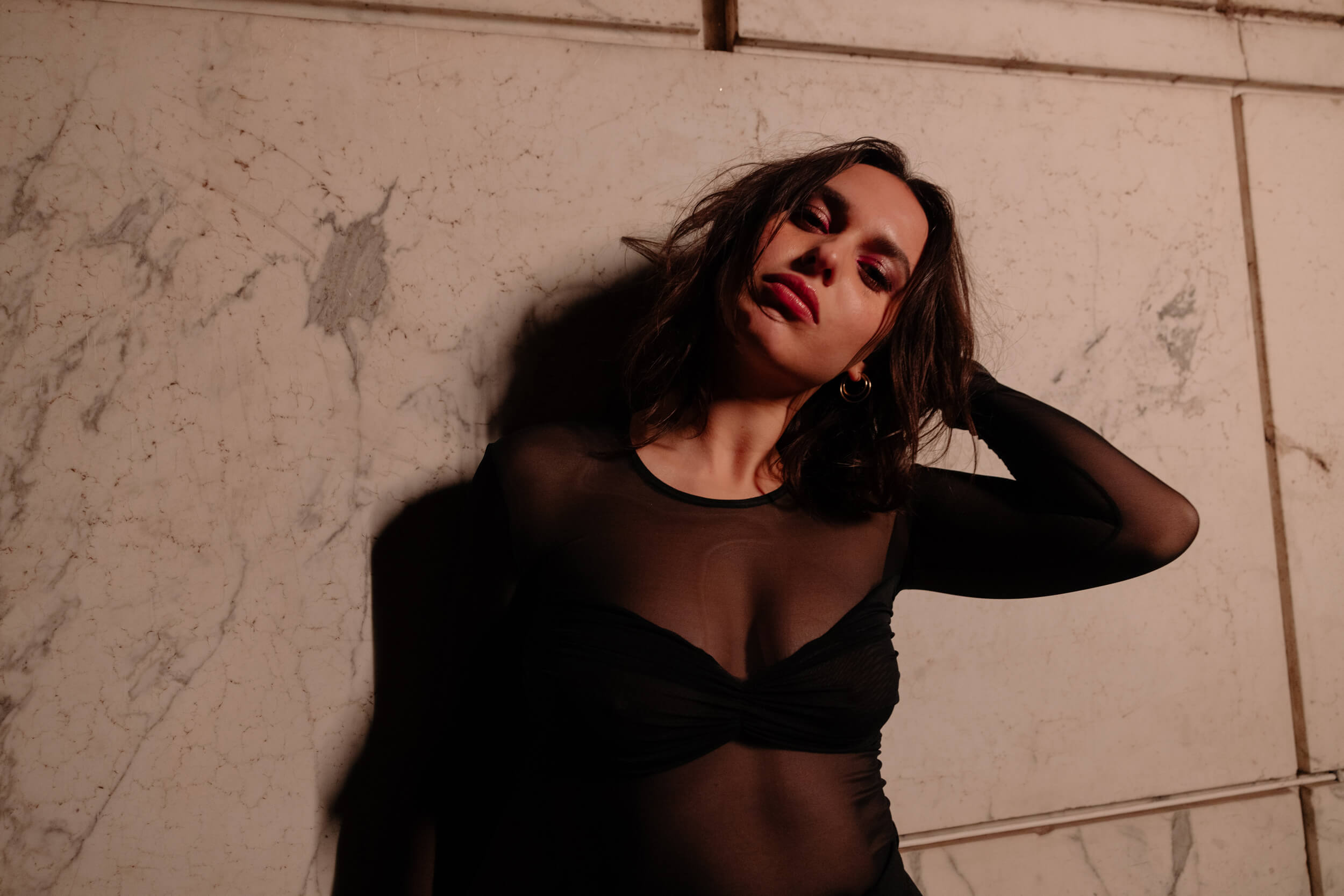
The suburbs as the potential of a wannabe city, in the far future, that perhaps is closer than what we think: why, though, do we give it a negative interpretation? Maybe, could the suburbs only be an imaginary place, if only we’d get rid of the traditional judgments that tend to stigmatize it?
Oftentimes, in the suburbs, there’s a lack of economic investments and cultural planning that could make these places central although geographically peripheral. Unfortunately, I don’t think there’s a real will to change things.
What’s your first rule?
My first rule is to have breakfast every day, or my day will start really badly!
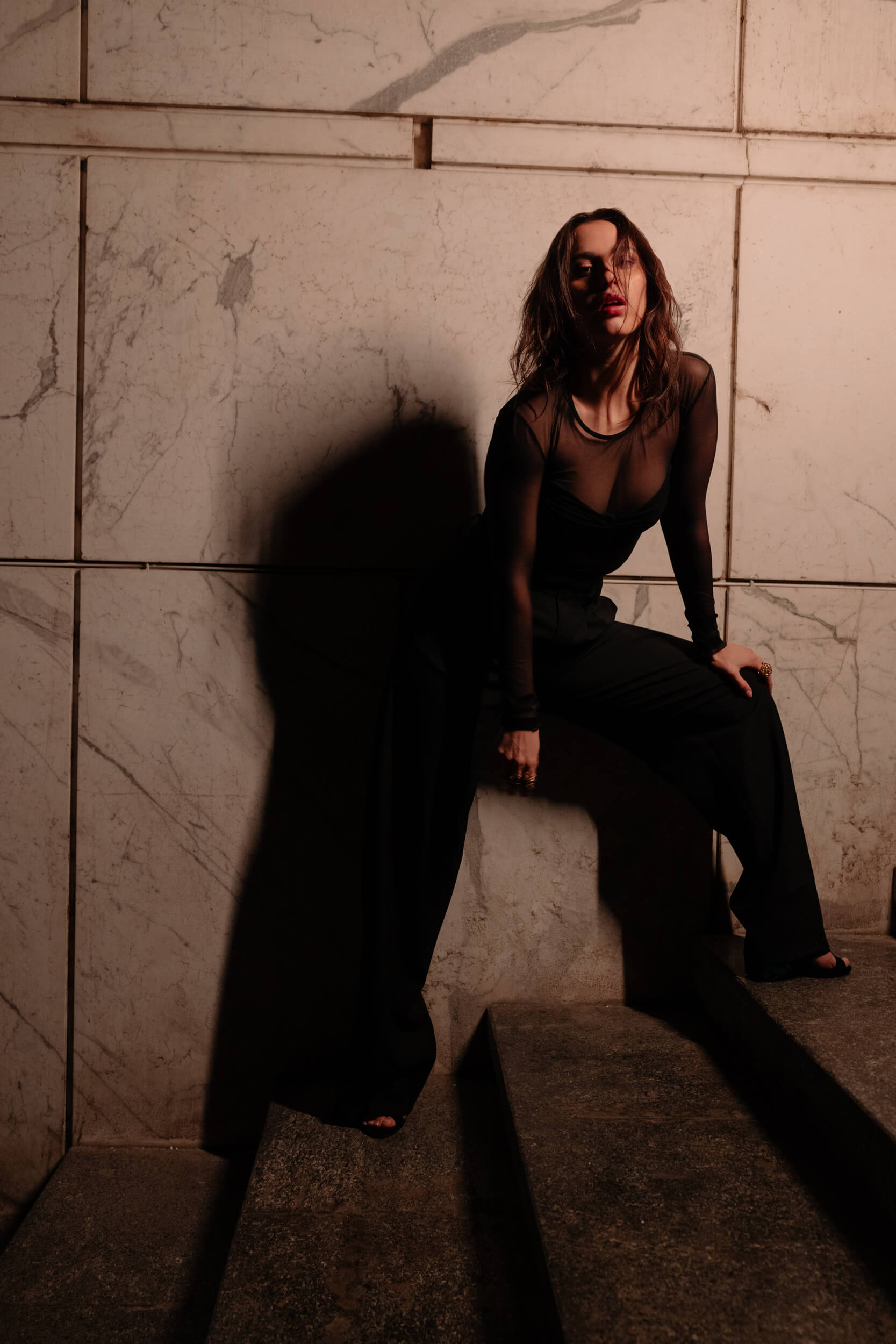
The new, seventh season of “Che Dio ci aiuti” will be released on Rai1 on January 12th; we’ll say goodbye to some characters, we’ll welcome some new ones, and say hello to some old friends, among whom yours. We know that Azzurra will take the lead in the convent and she’ll have to solve the problems of the various characters, while what should we expect from your character?
It’s the first time I play a joyous, funny, and also very sweet girl. I’m a big fan of Bridget Jones and I kind of see a resemblance… Maybe she’s an Italian Bridget! I also hope that many girls can relate to the “normality” of my character and that all the lightheartedness that I’ve experienced over these months gets to them, too!
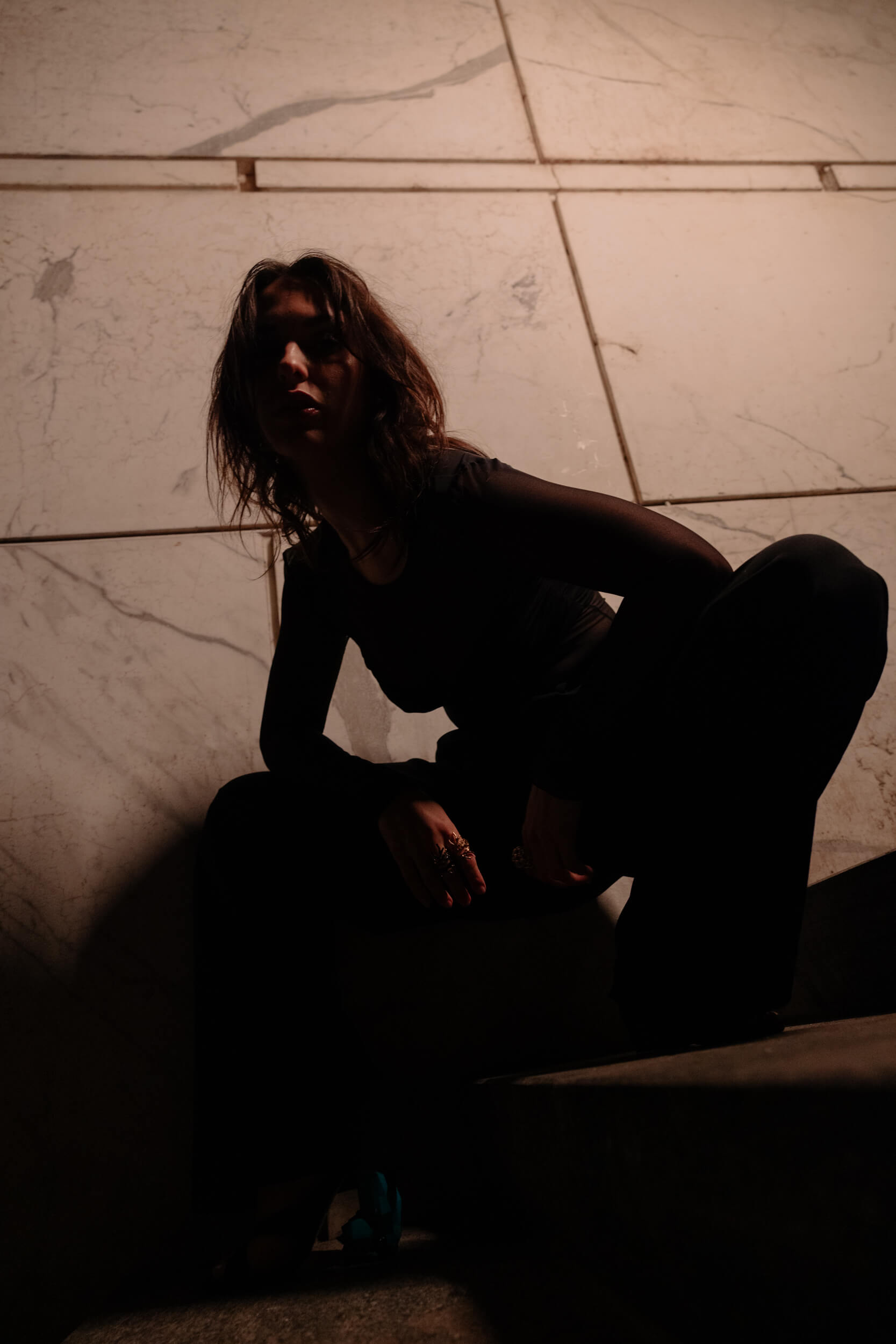
“An Italian Bridget”
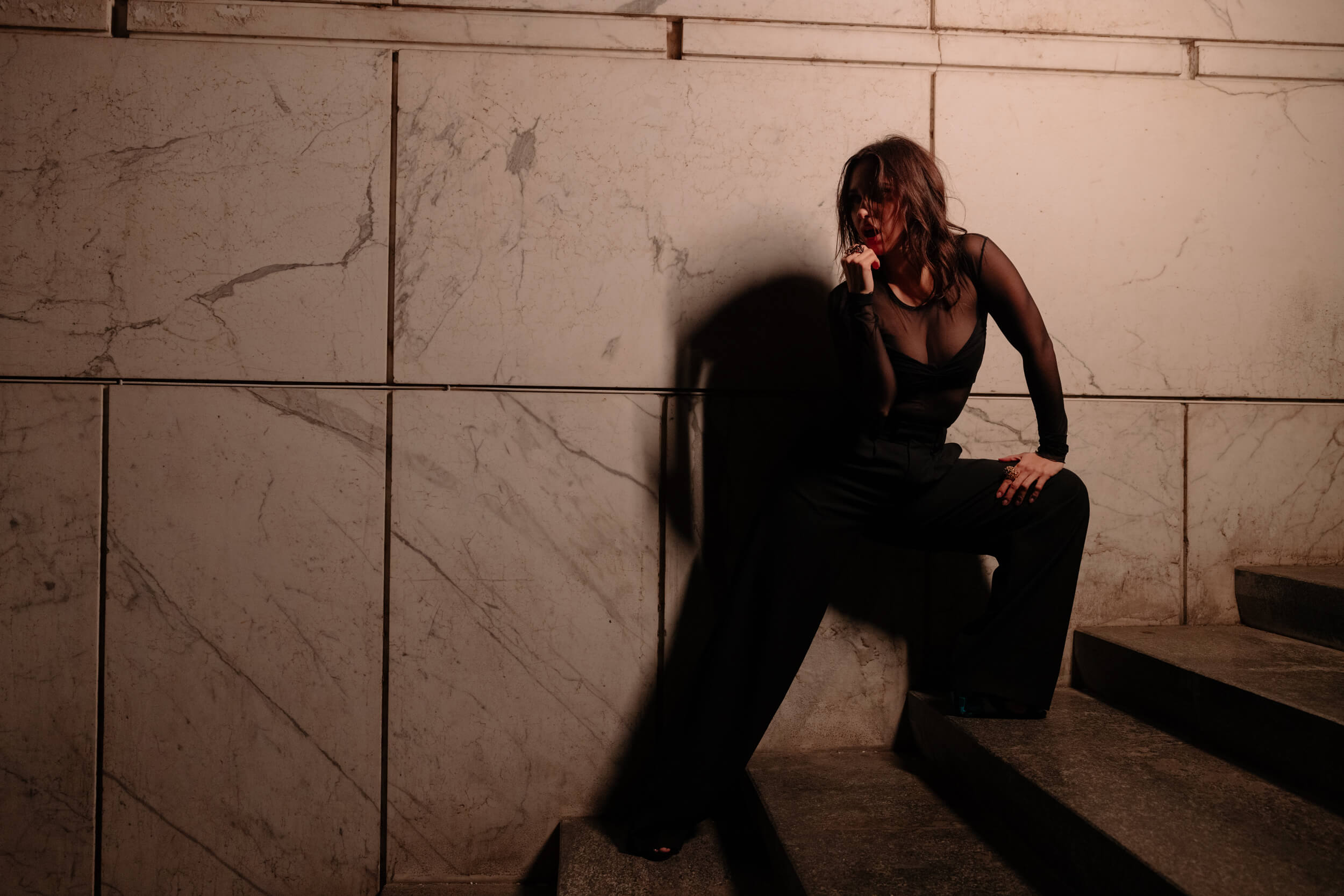
When you build a character, are you more rational or instinctive?
Instinctive.
An epic fail on set?
I always stumble… It’s such a disgrace!
Your must-have on set?
When you have to wake up at dawn, the only possible must-have is my sweats and extra-dark chocolate for my half-morning snack.
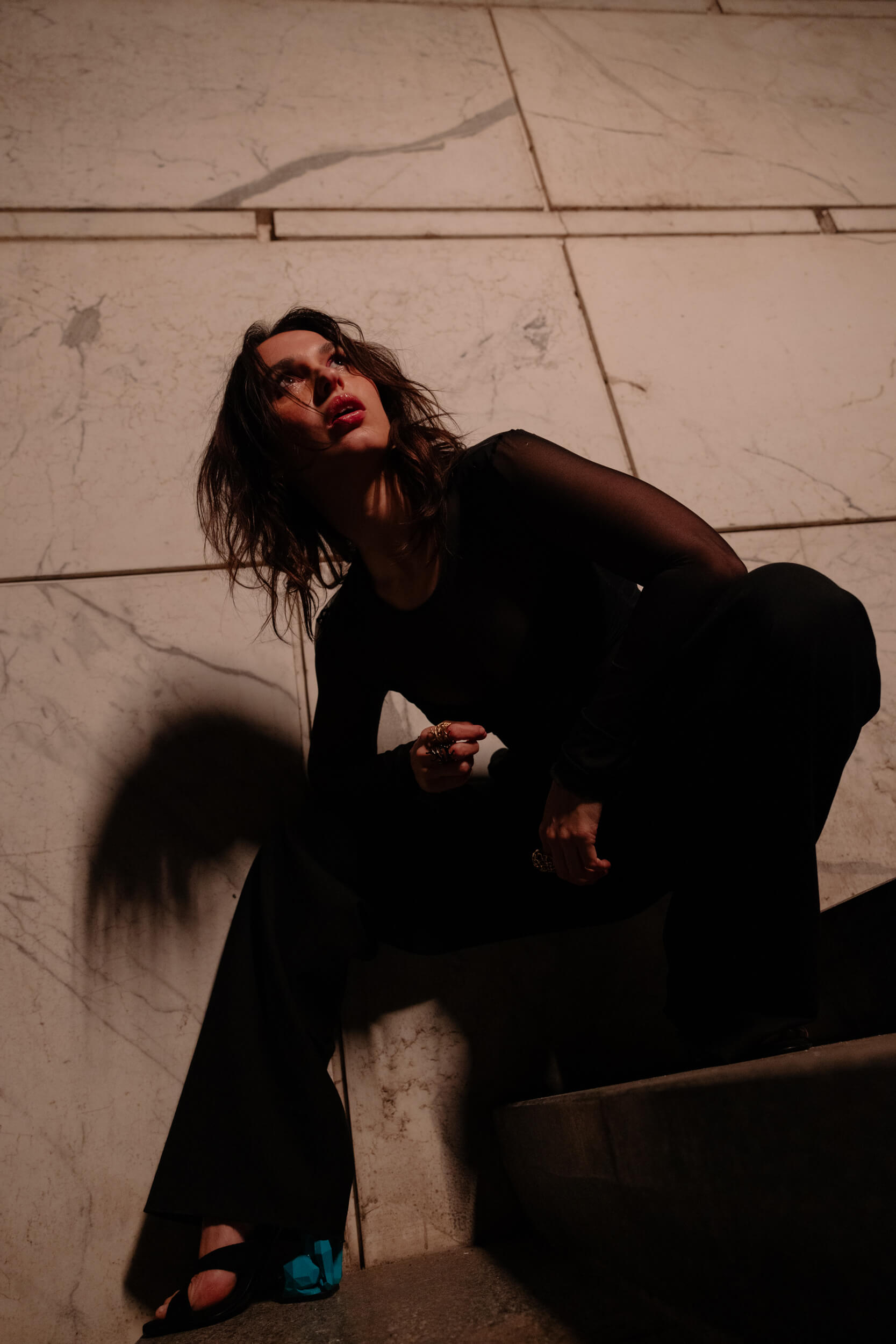
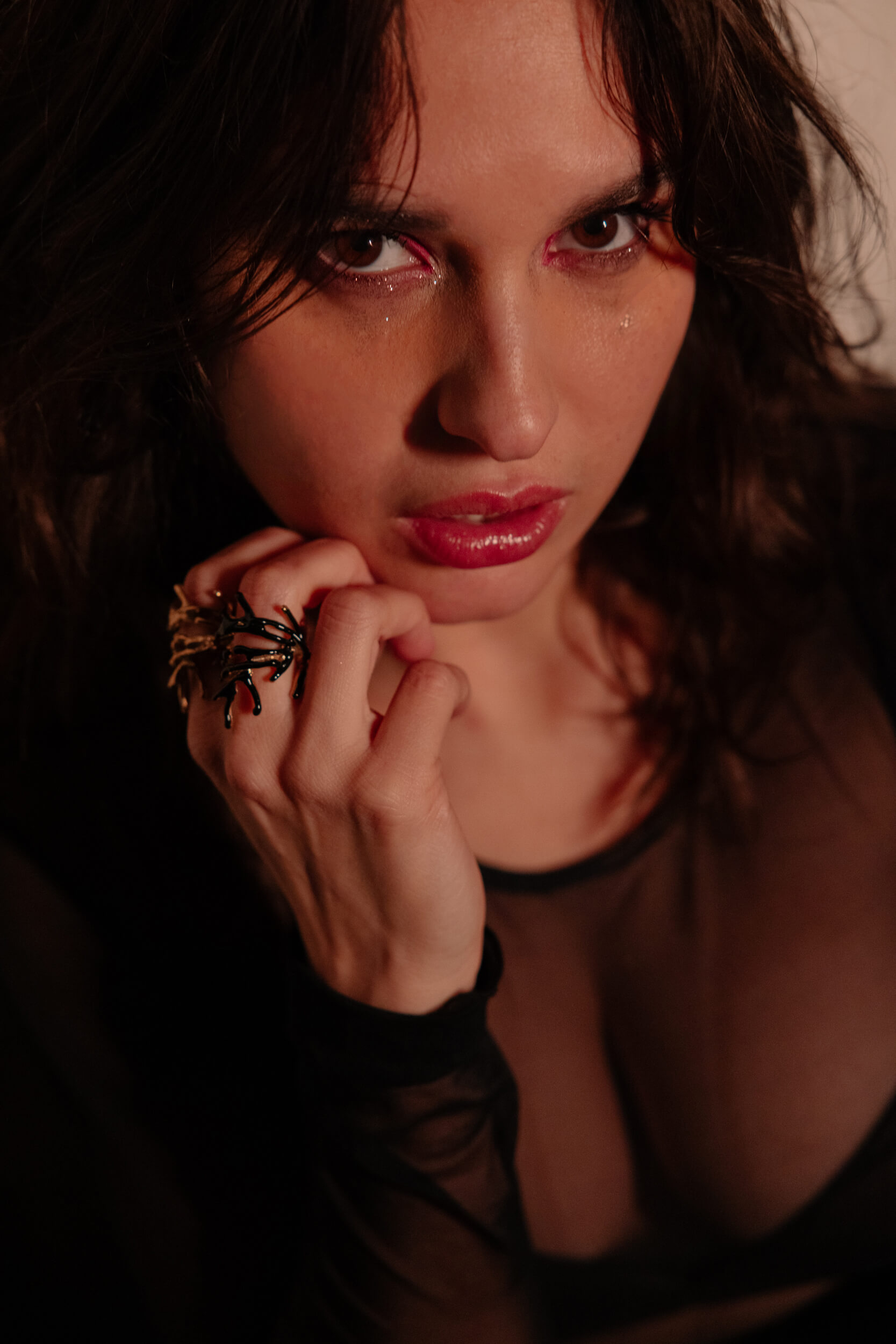
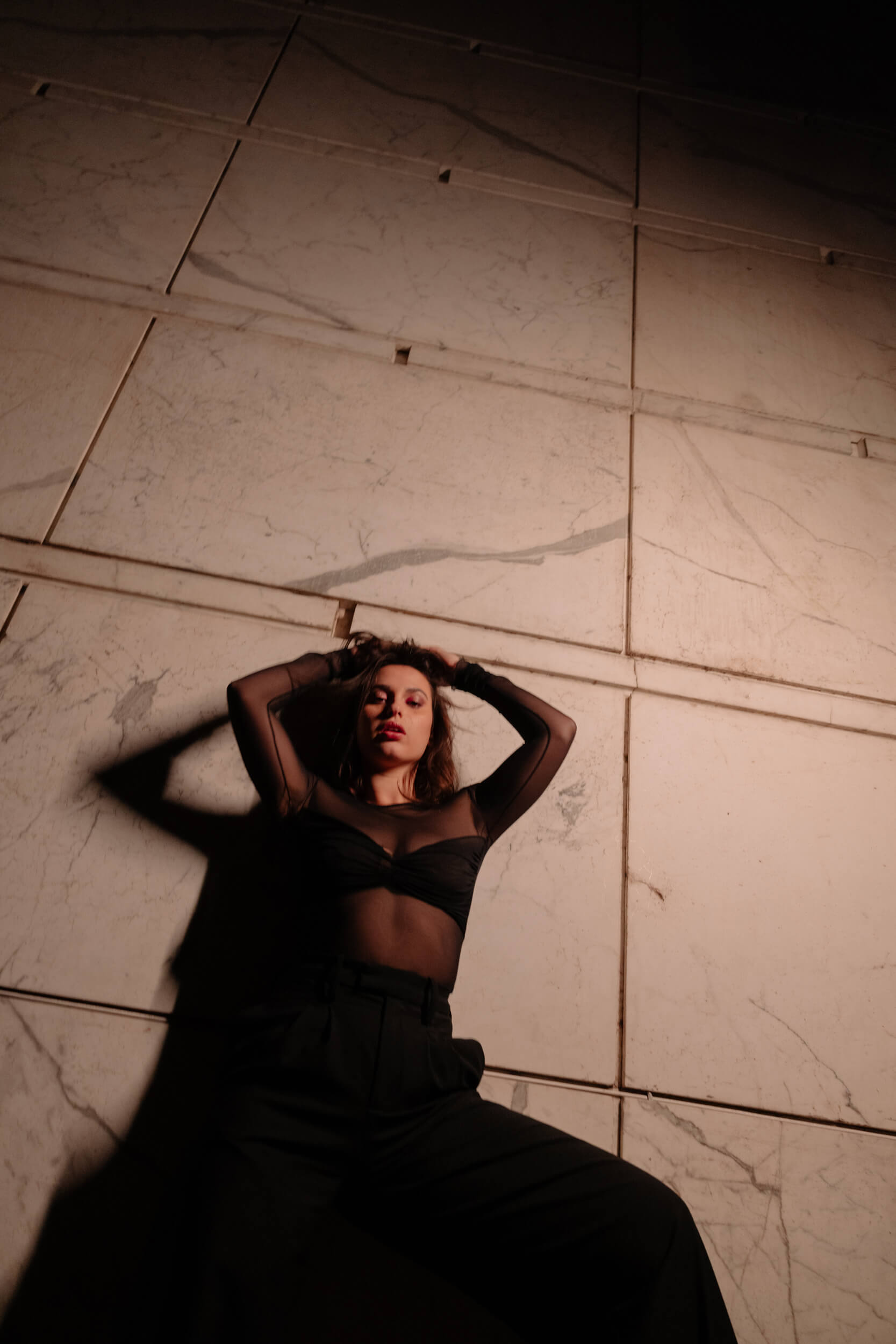
What’s the bravest thing you’ve ever done?
I started this path a year ago, and it’s trying to live up to myself.
What are you afraid of, instead?
Of not being able to do it.
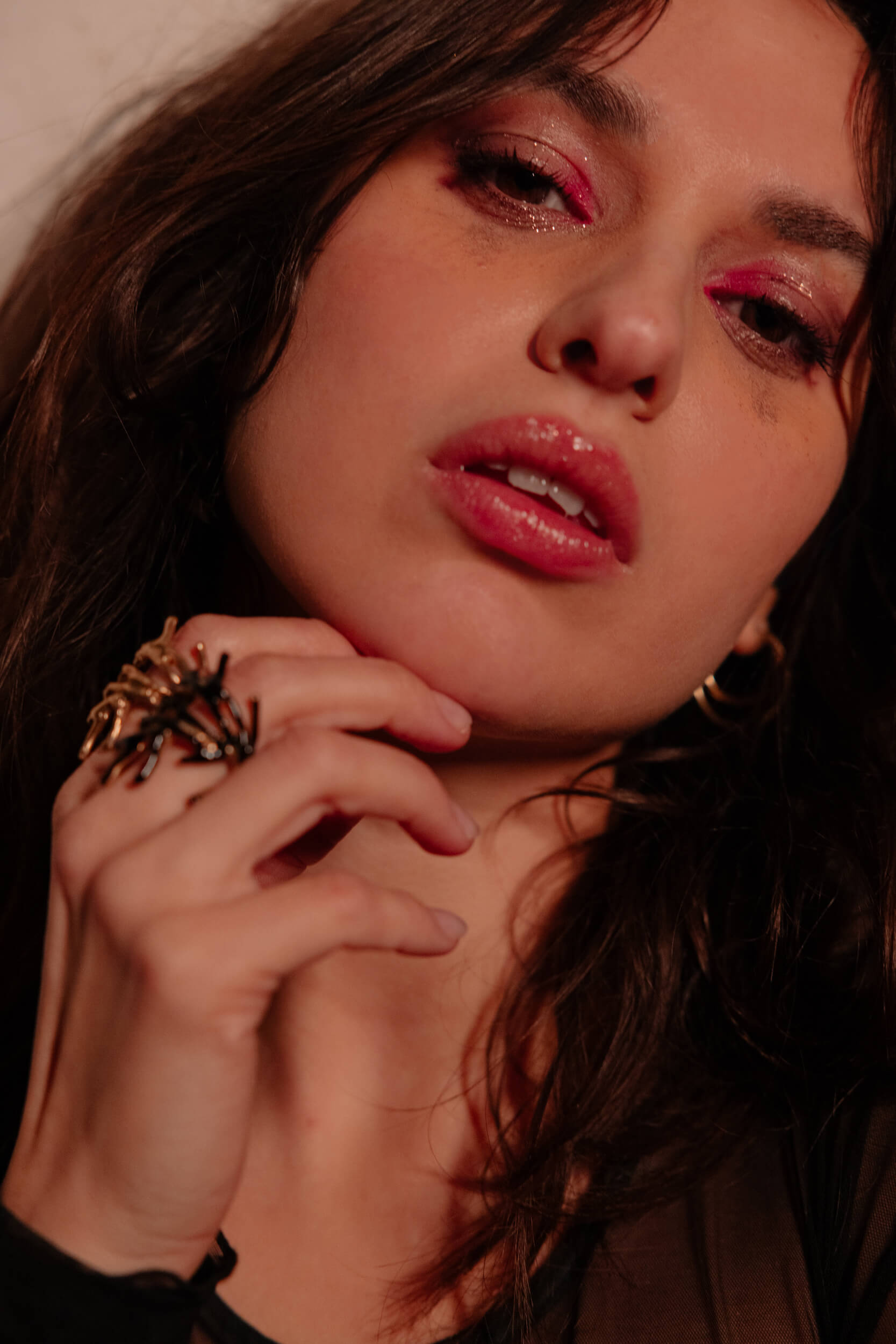
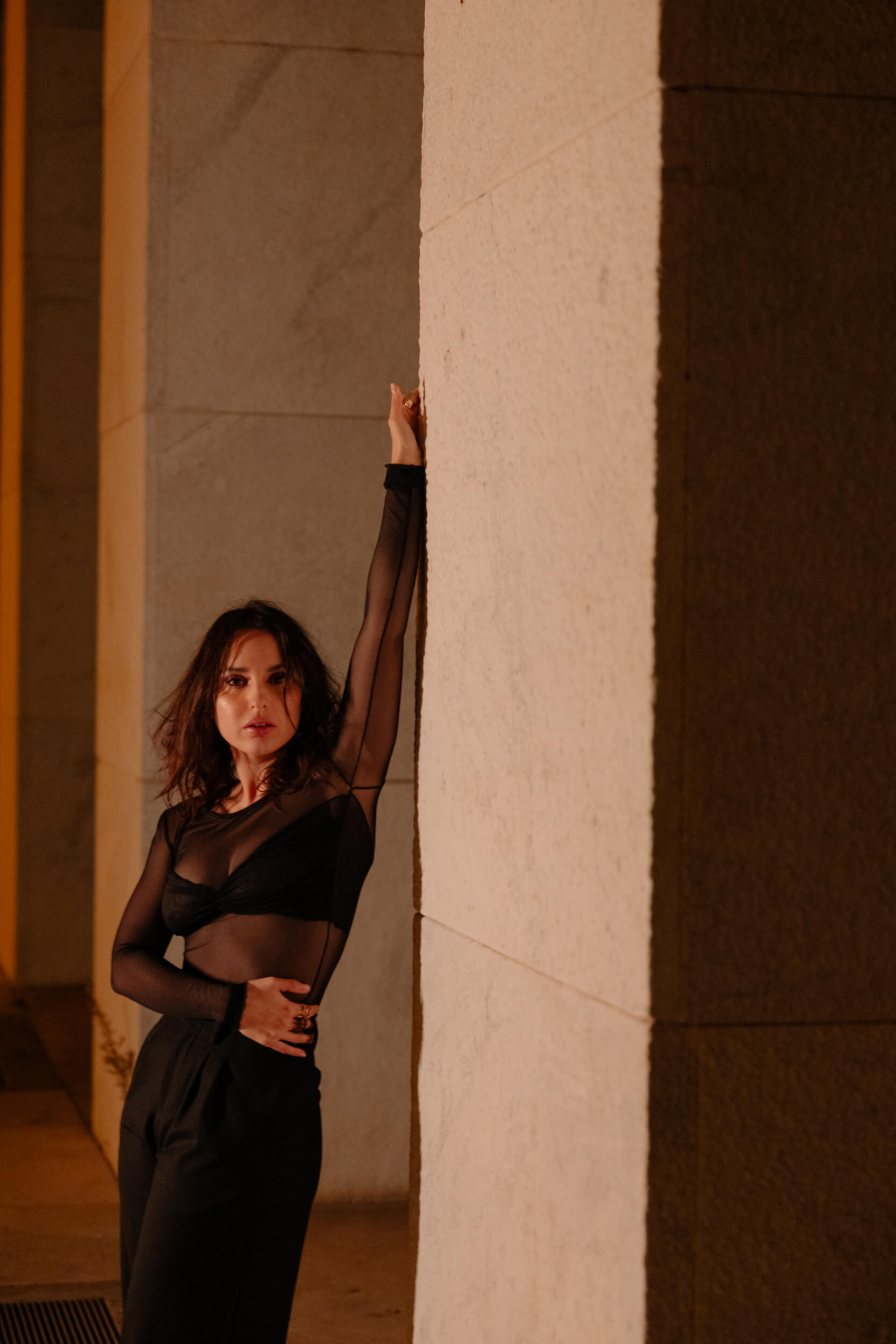
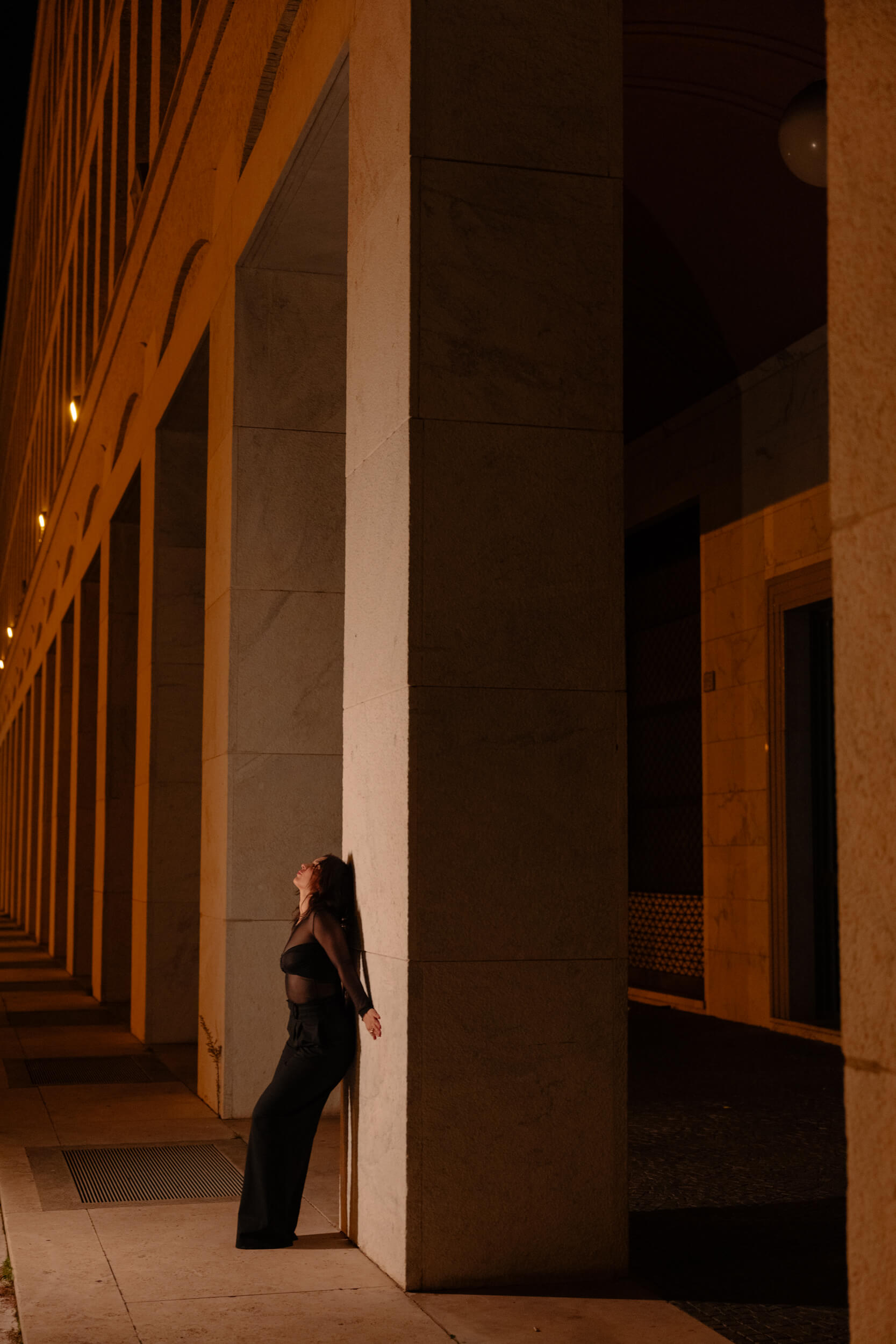
Your greatest act of rebellion?
Not adjusting to the schemes, especially work-wise.
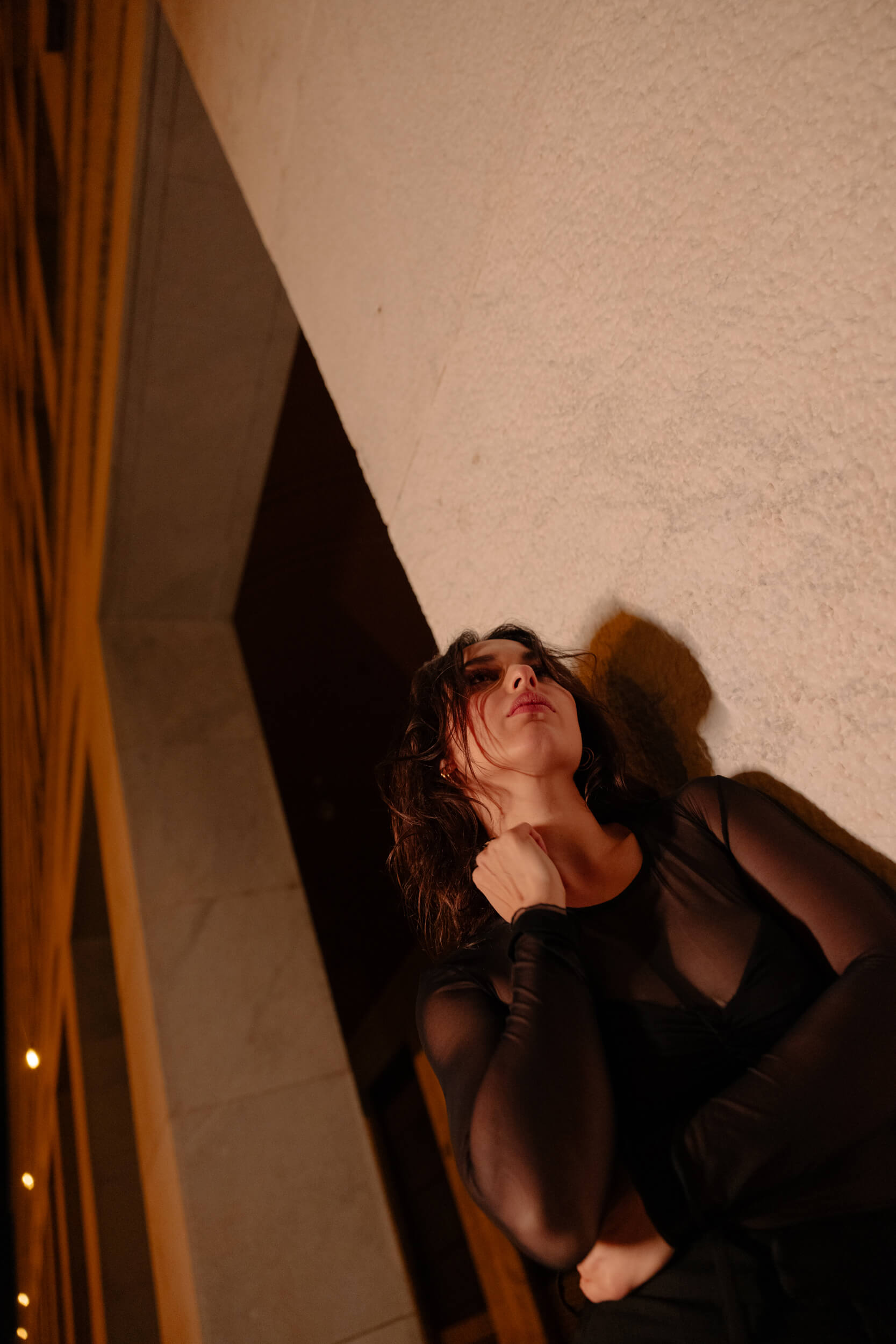
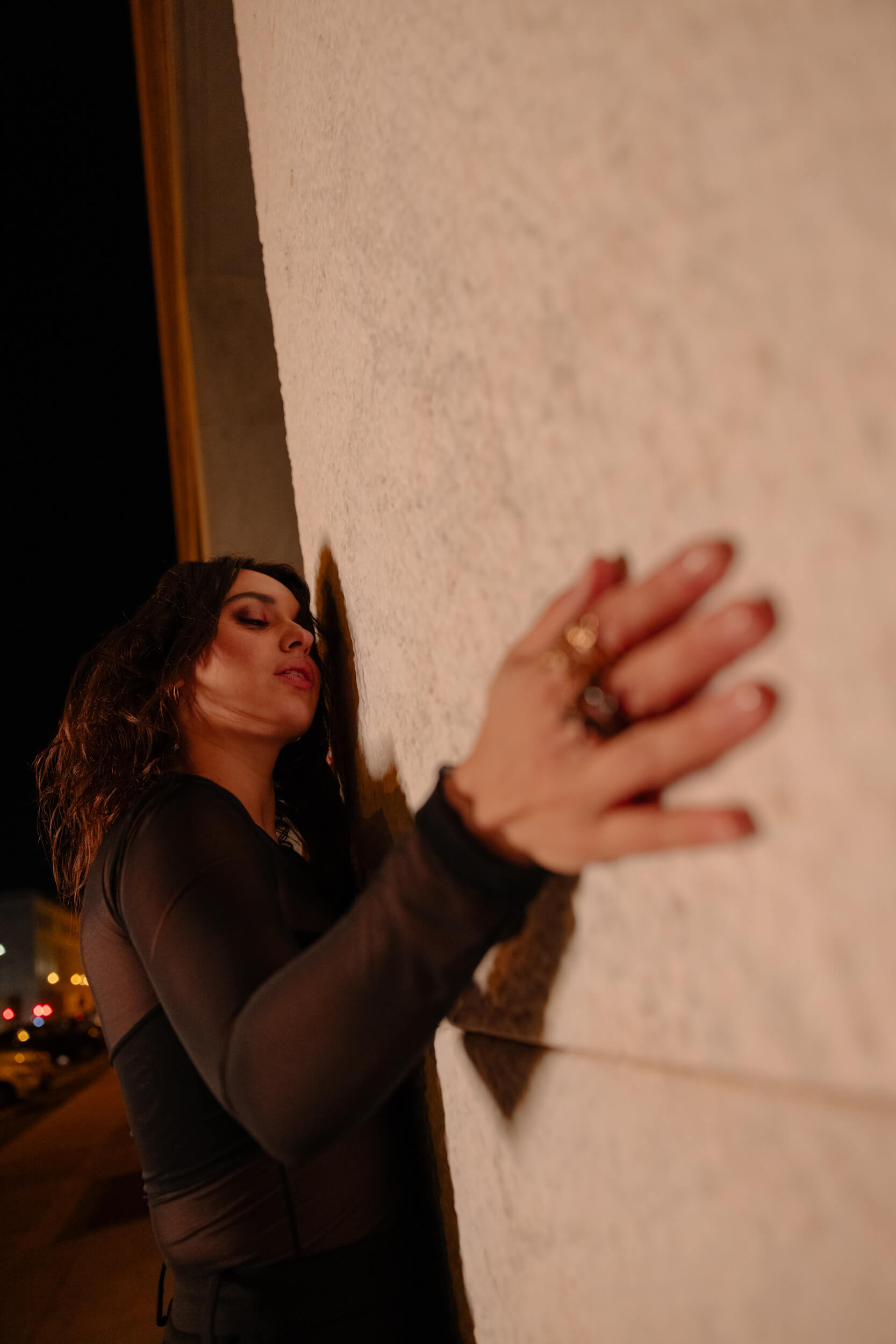
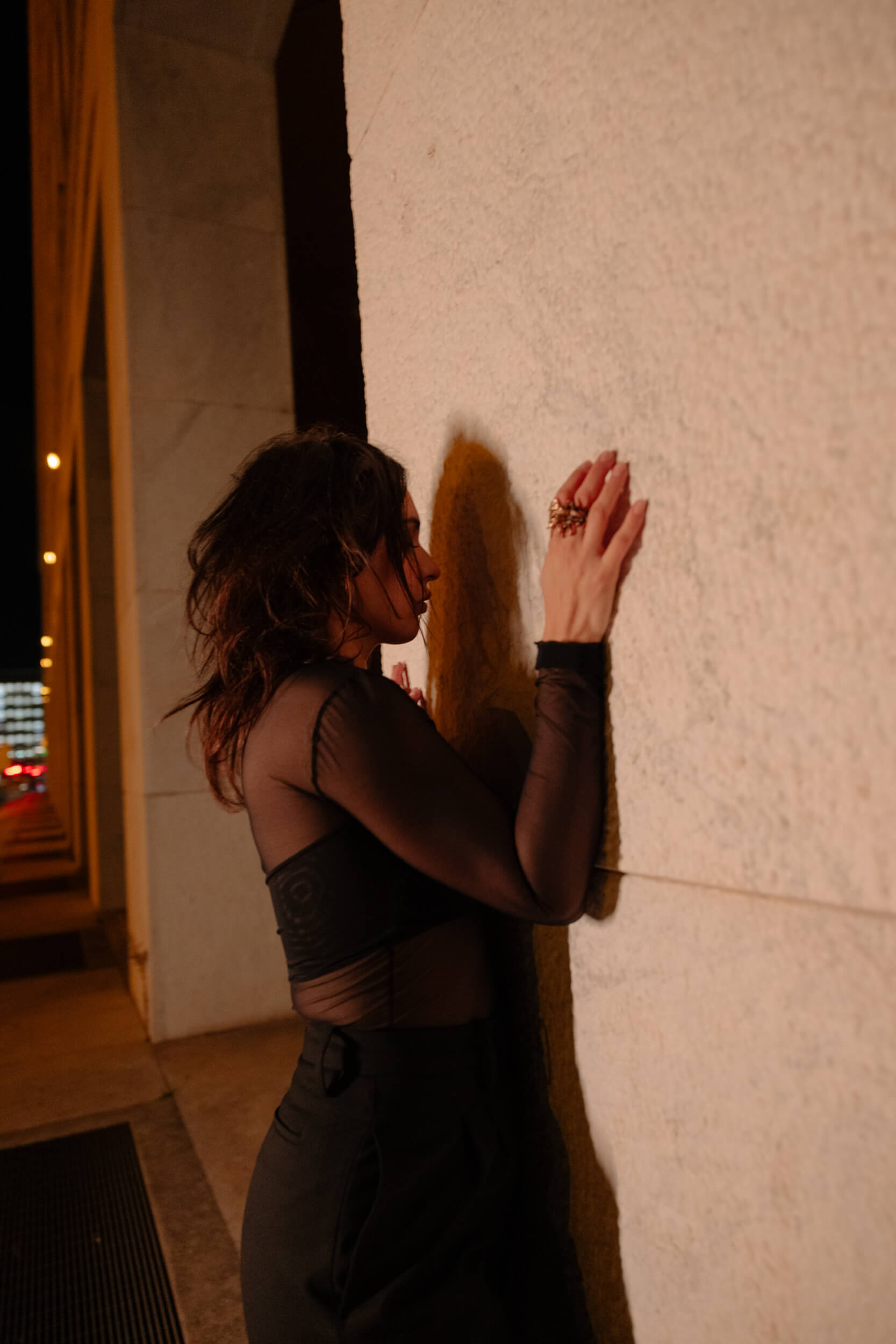
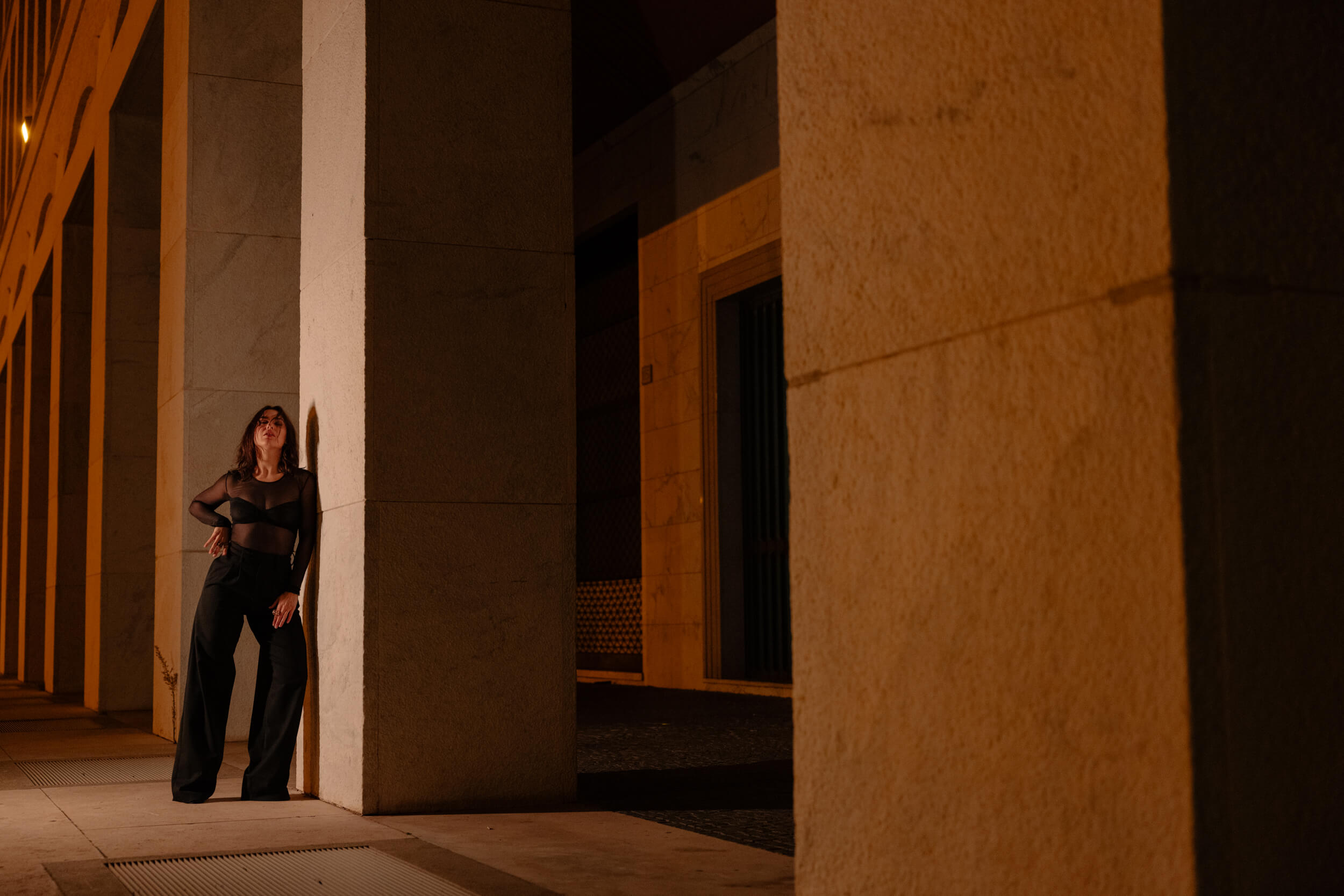
What does it mean to you to feel comfortable in your own skin?
I’m still working on it.
What’s your happy place?
My family, especially the new arrival: my nephew, Atena!
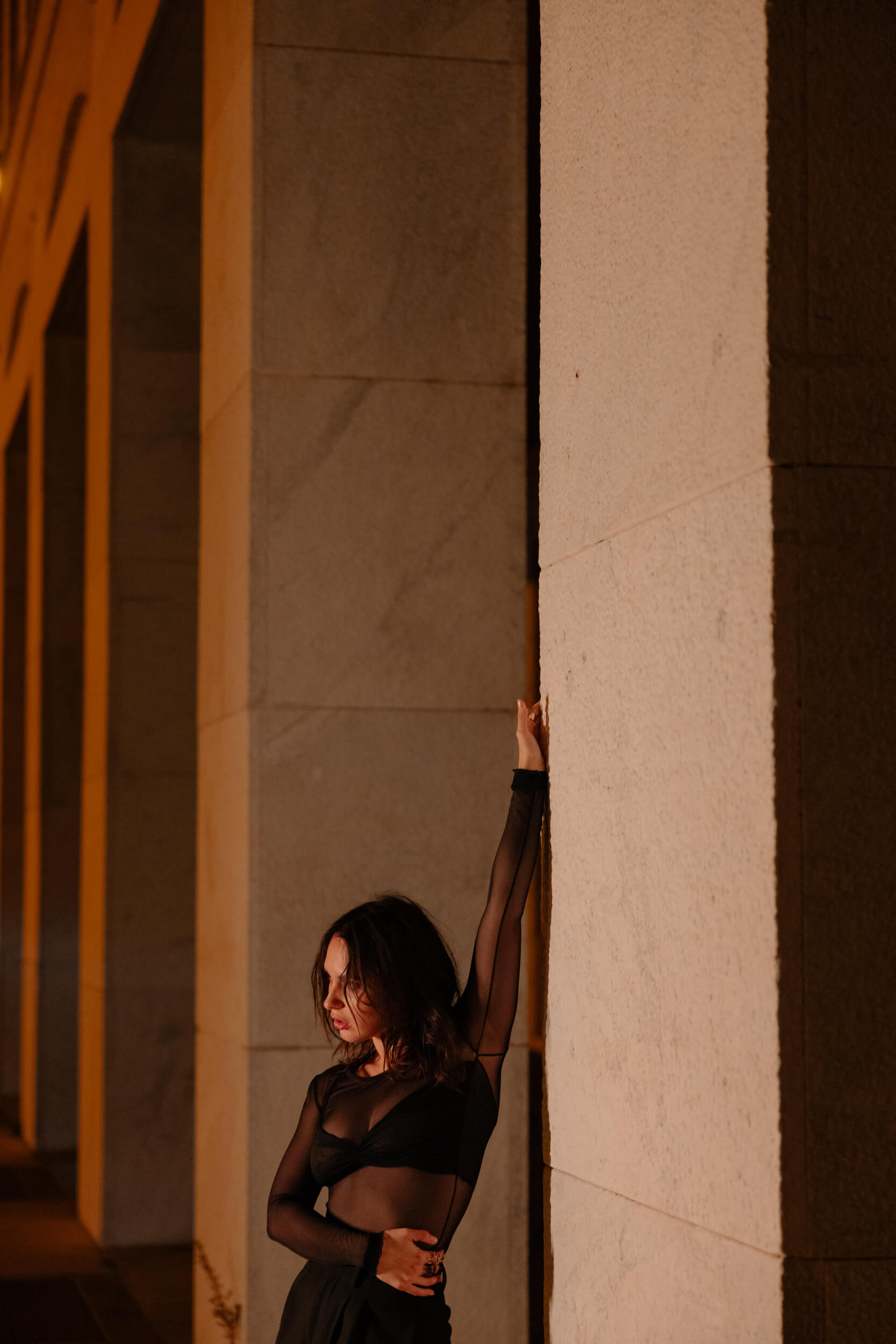
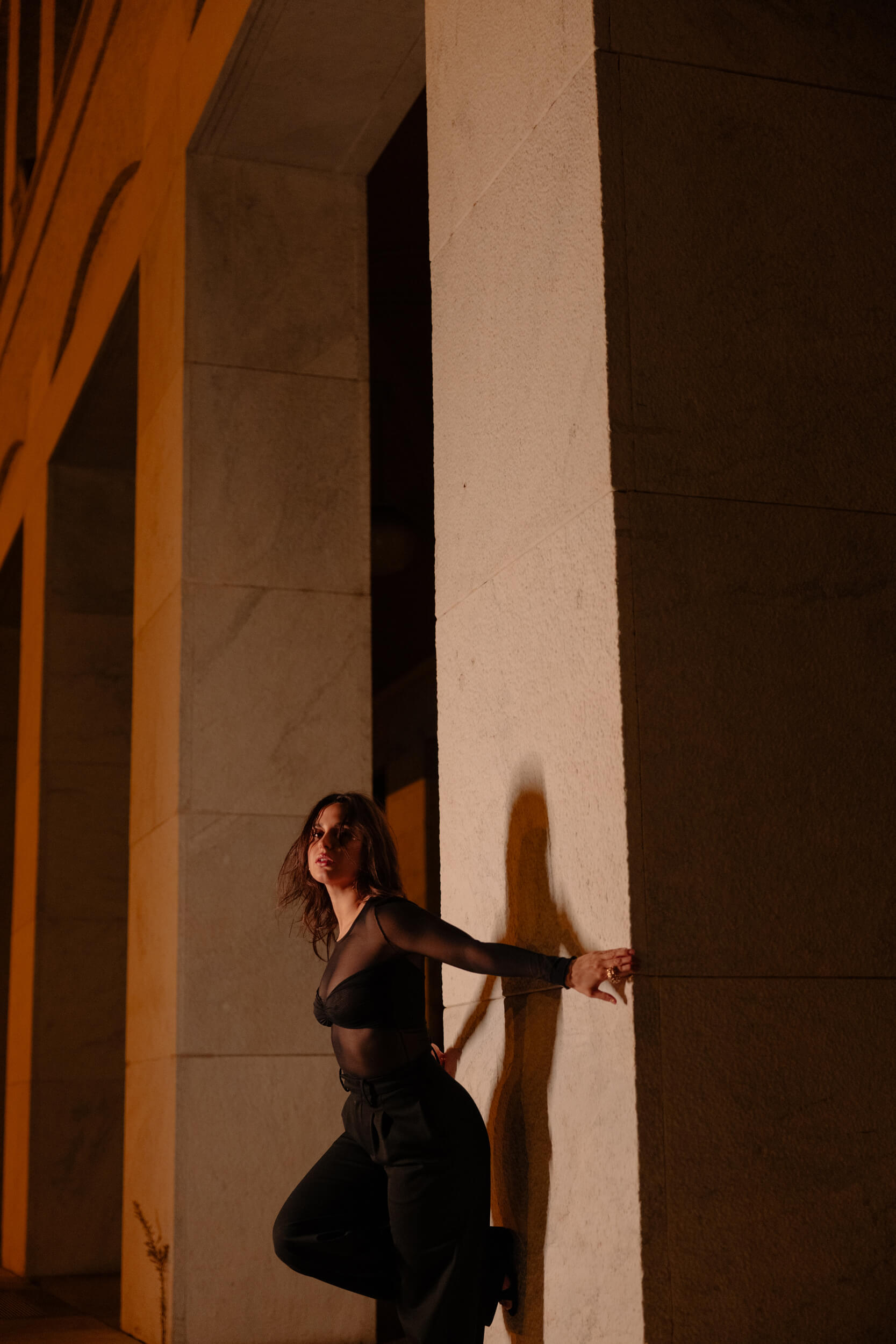
Photos & Video by Johnny Carrano.
Makeup and Hair by Adelaide Fiani.
Styling by Valentina Palumbo.
Thanks to LaPalumbo Comunicazione.
LOOK 1
Dress: Federica Tosi
LOOK 2
Dress: Missoni
LOOK 3
Top and Trousers: Federica Tosi
Jewels: Maria Patrizia Marra
Shoes: Kardif

